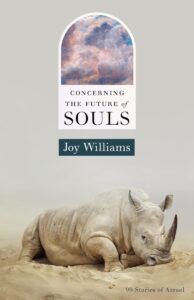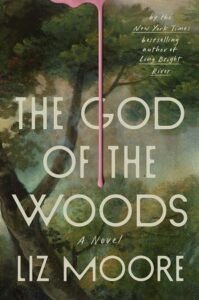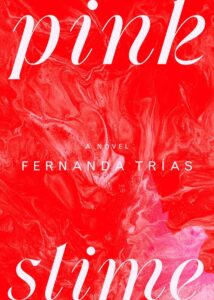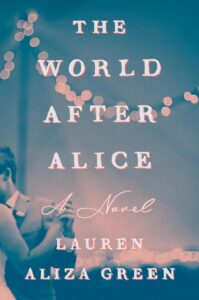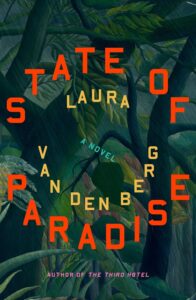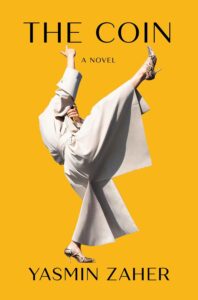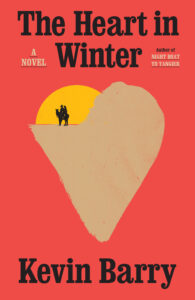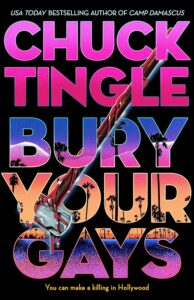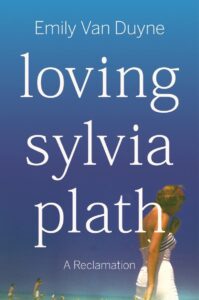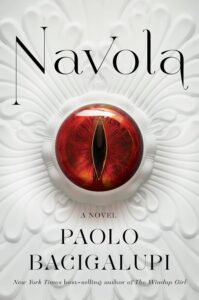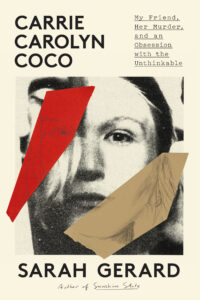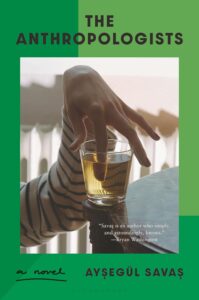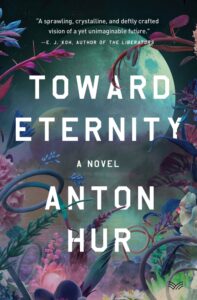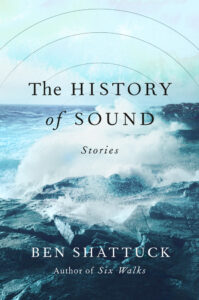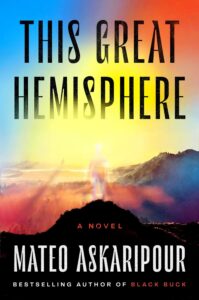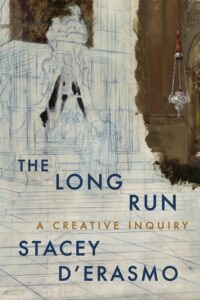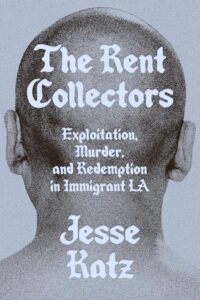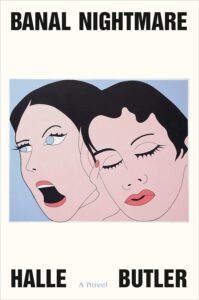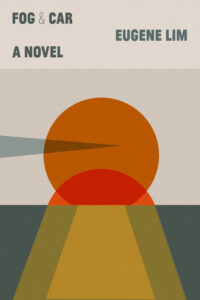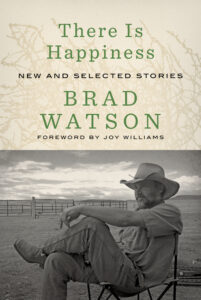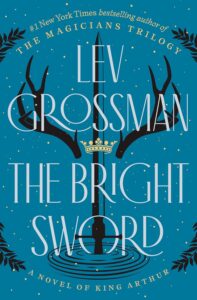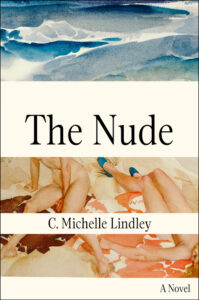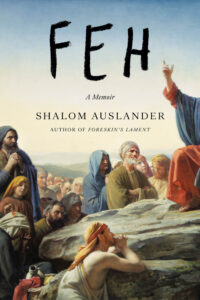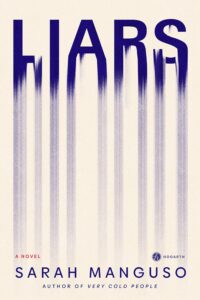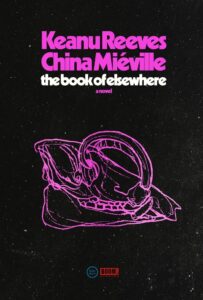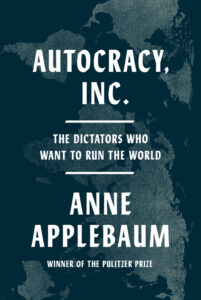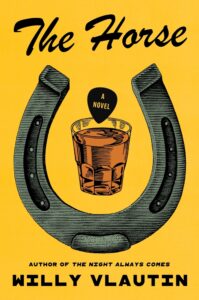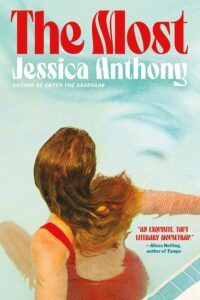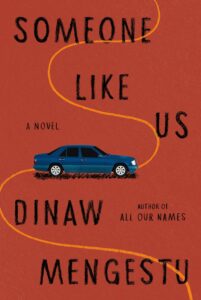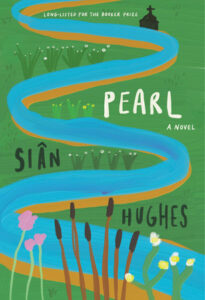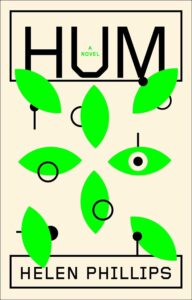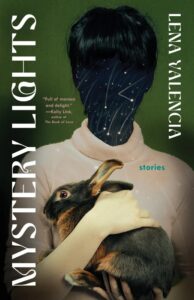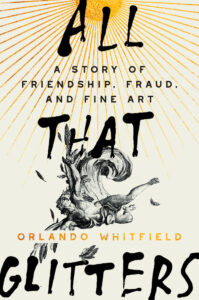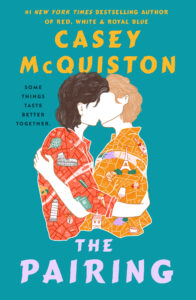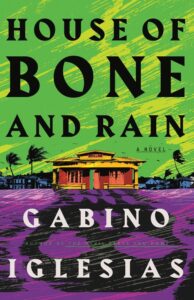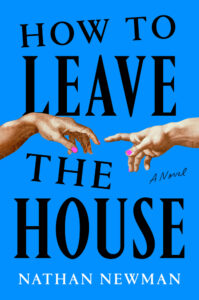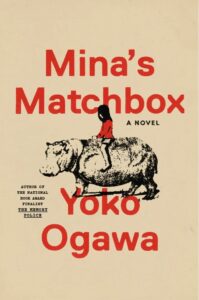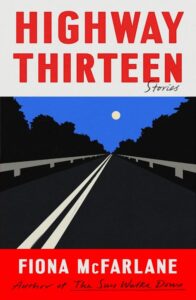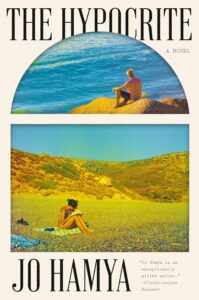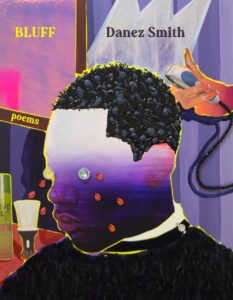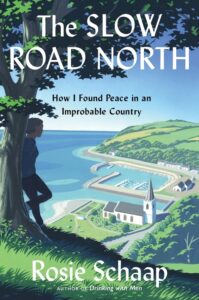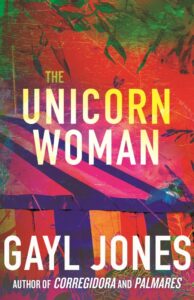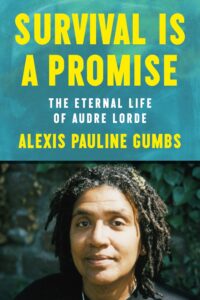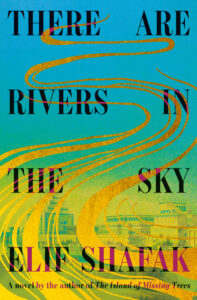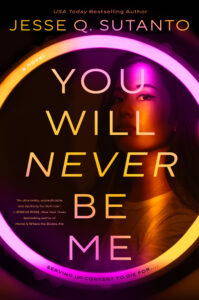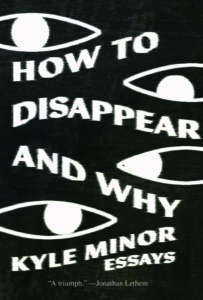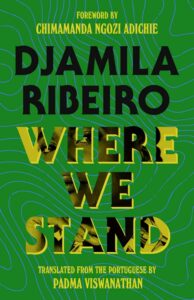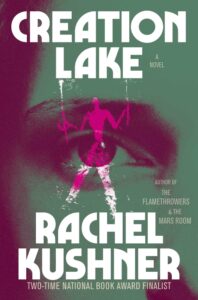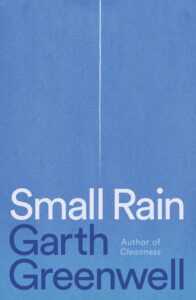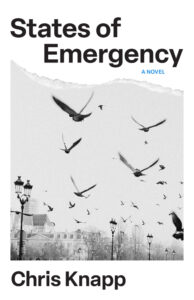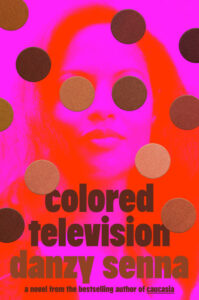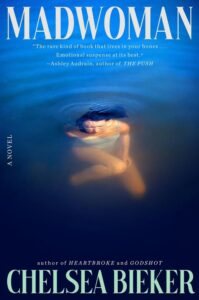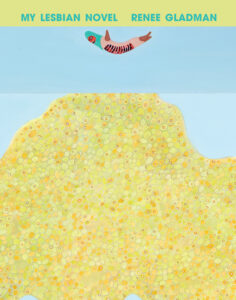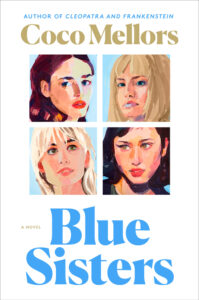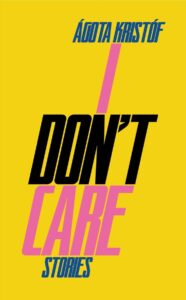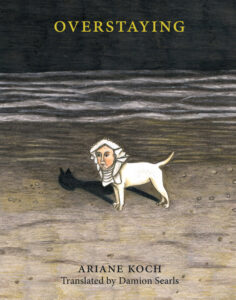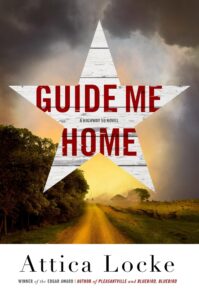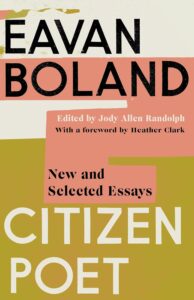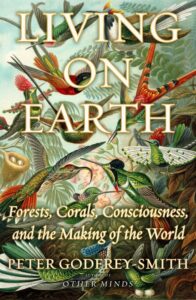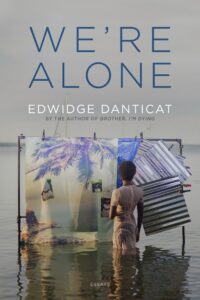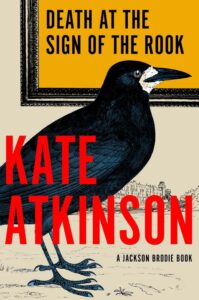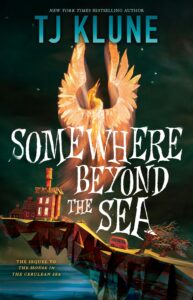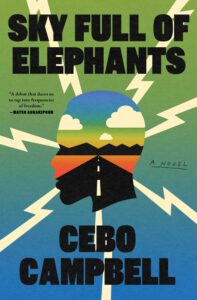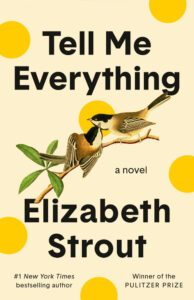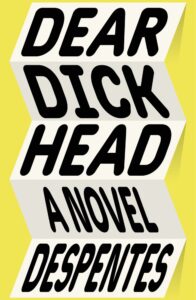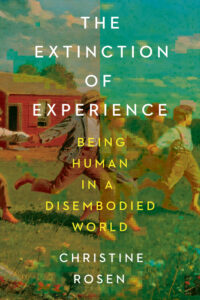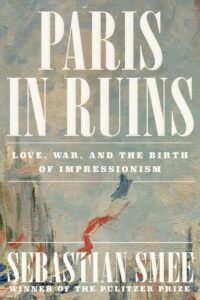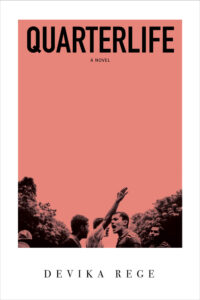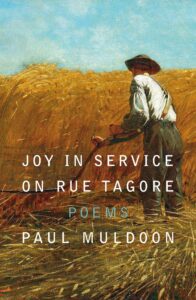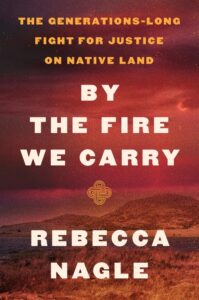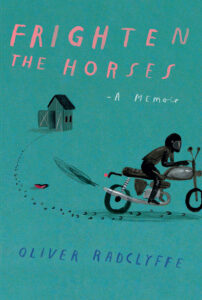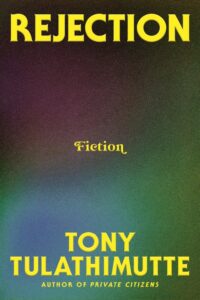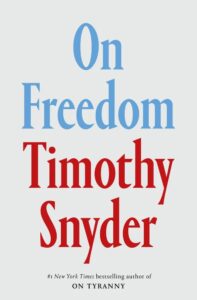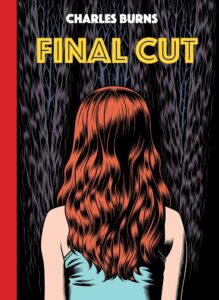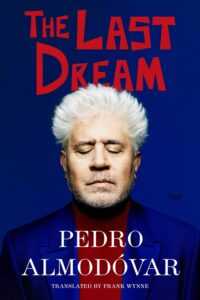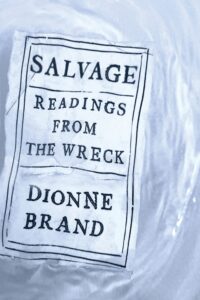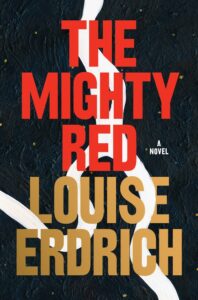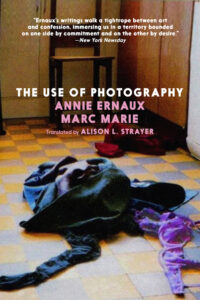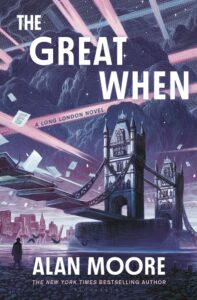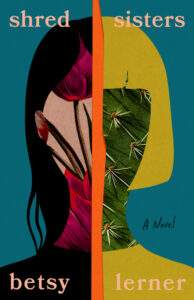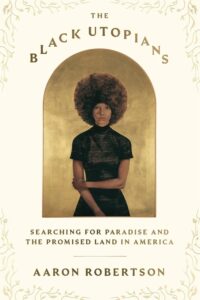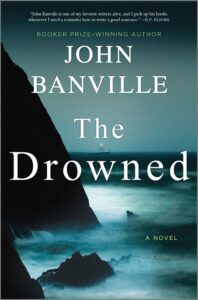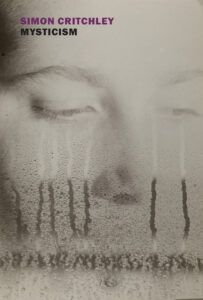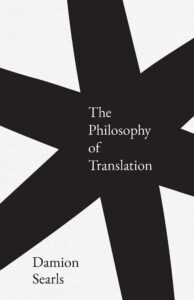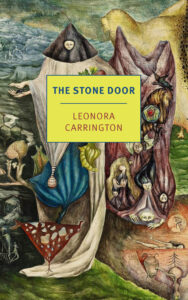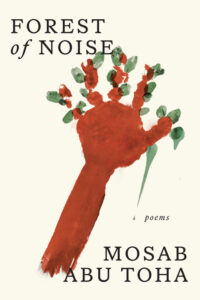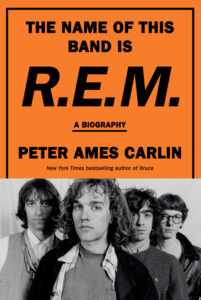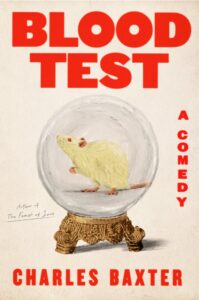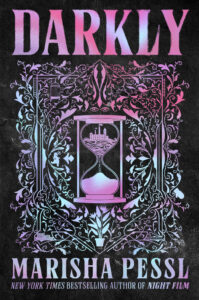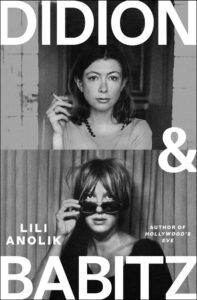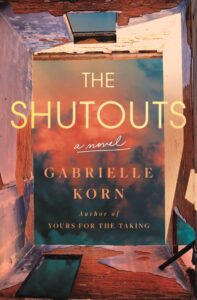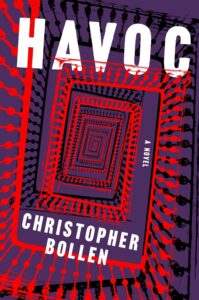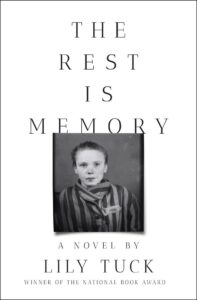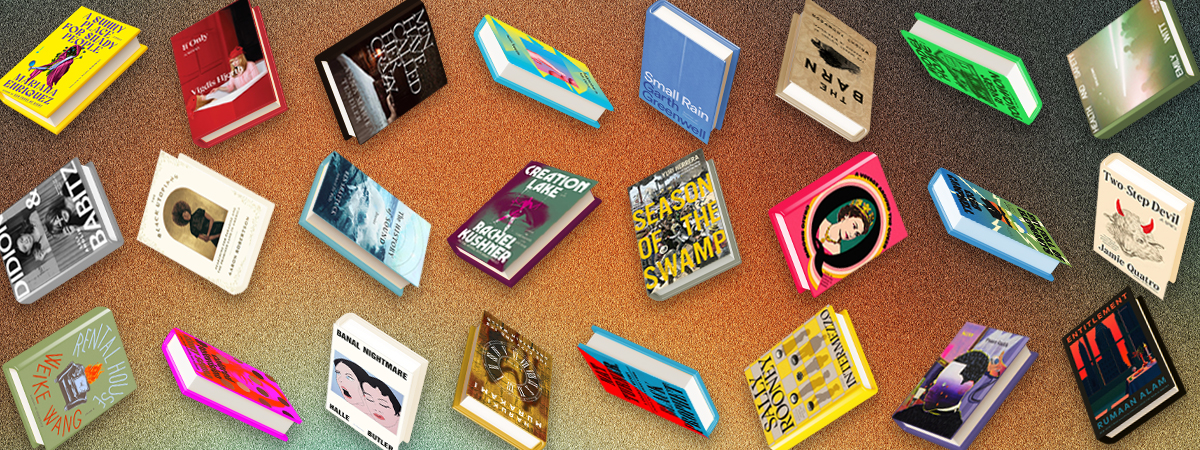
Lit Hub’s Most Anticipated Books of 2024, Part Two
193 Books to Read in the Second Half of the Year
Well, it’s been a pretty bad year so far, all things considered, with the strong potential to get worse. But as always, there’s a silver lining (of sorts): the books. Now that the year’s reading is half over, it’s time for an updated preview, so here are the books the Literary Hub staff is most looking forward to reading in the back half of 2024.
July
Joy Williams, Concerning the Future of Souls
Tin House, July 2
I was completely enthralled by the excerpt from this collection of short pieces that ran in the Spring Paris Review. The complete Concerning the Future of Souls contains 99 pieces about death, most of them following Azrael—the devoted angel that escorts souls to their judgment at God’s feet—and Satan, who spars with Azrael. Jung, Nietzsche, and Rilke appear, as do horses, butterflies, and tortoises, all united in the shared experience of mortality. Each piece is small, its own shining gem set into constellations with its neighbors. Williams is a beautiful and intelligent writer, and her short meditations are poetic, sad, and often quite funny too. –James Folta, contributing writer
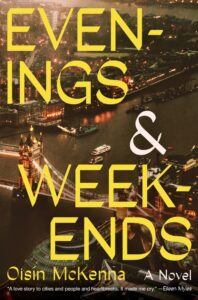
Oisín McKenna, Evenings and Weekends
Mariner, July 2
Irish spoken-word artist and playwright Oisín (pronounced “ush-een,” in case you’re curious) McKenna’s debut novel is a queer, multi-generational, polyphonic story set in London during a sweltering June weekend in 2019. It’s being billed as “Sally Rooney meets Torrey Peters,” which sounds pretty incredible, and just received this rave review in the Guardian: “For even as it utters a howl of rage at broken, late-capitalist Britain, Evenings and Weekends is a love letter to the city—the chance it offers to forge your own identity, and the interconnectedness of urban life.” –Dan Sheehan, Book Marks Editor in Chief
Liz Moore, The God of the Woods
Riverhead, July 2
Liz Moore’s Long Bright River was a spectacular pivot to crime for Liz Moore and her new one should cement her reputation. It’s a great summer read about missing children at a summer camp, with a tinge of “all of this has happened before” looming around the edges. Reading this felt like discovering Tana French’s In the Woods—and not just because of the “child disappeared in the woods” angle, but because it’s unputdownable and thrillingly constructed. –Drew Broussard, Podcasts Editor
Fernanda Trias, tr. Heather Cleary, Pink Slime
Scribner, July 2
As previously recommended: I have been waiting for this book since last summer’s Times write-up of the new wave of speculative fiction coming out of Latin America, and it doesn’t disappoint. This novel is being comped to the works of Samanta Schweblin and Mariana Enriquez—and while those are useful comparisons, particularly in the case of Schweblin’s Fever Dream—Pink Slime is very much its own beast, due to become a frequent comp title in its own right.
It’s set in a moment of ecological anxiety where a red algae bloom has created a ‘red wind’ off the sea that infects and kills most of the people exposed to it, where healthy/natural food is increasingly hard to come by and people eat processed meat paste instead. The narrator is struggling to adapt to this new world, trying her best to serve as a nanny for a constantly hungry boy and to take care of her stubborn mother and her dying ex-husband. Trías’s prose, in Heather Cleary’s terrific translation, pulls you in slowly until you find you can’t put the book down—like being locked in during a wind alarm, trying your best to keep your footing. I’ve already ordered Trías’s earlier novel The Rooftop from her UK publisher, because I’m that excited to read more. –DB
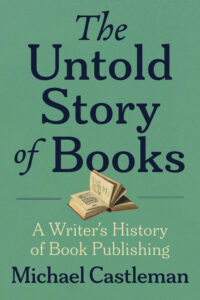
Michael Castleman, The Untold Story of Books
Unnamed Press, July 2
Here’s one that’s perfect for Lit Hub readers: Michael Castleman’s history of the book business takes a long view of the 600-year-old industry that produces and distributes the art we love. He divides his history of publishing into three distinct business models, each one overtaking and replacing the last: the post-Gutenberg era that led to the first mass-produced books; the 19th-century machine age with higher costs and more contracts; and the third and current age of tech disruption, wholesaling, and a return to self-publishing. Castleman’s history is approachable, and he deftly explains the macro of technological innovations and economic incentives, as well as the micro, with lots of fun tidbits and tangents. –JF
Emily Dunlay, Teddy
Harper, July 2
In this madcap tale of espionage and adventure, a Dallas debutante marries a foreign service worker and heads to mid-1960s Italy, determined to put her wild days behind her and finally Behave. Events conspire to foil her goals of proper deportment, and soon enough, she’s involved in a blackmail scheme, embassy hijinks, and the most daunting task of all: finding a couture dress that can fit her without needing to be tailored. Teddy is not just a fabulous historical novel—it’s a manifesto against the patriarchy, and a liberating experience of watching a woman free herself. –Molly Odintz, CrimeReads Managing Editor
Lauren Aliza Green, The World After Alice
Viking, July 2
As previously recommended: Lauren Green is a poet and a debut author (of Forbes 30 Under 30 fame) with a much-heralded title coming this July. The World After Alice is about the death of a girl named Alice and a wedding that takes place twelve years later. Alice’s brother, Benji, is marrying her best friend, Morgan, and the families must come together and confront their rocky and devastating past while attempting to celebrate and seek joy in the union. With betrayals and grief and secrets all threatening to interrupt the wedding weekend, The World After Alice is a juicy and emotional read that surprises as much as it entertains. –Julia Hass, contributing editor
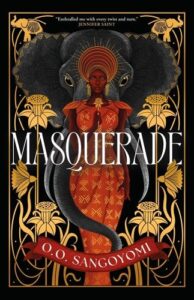
O.O Sangoyomi, Masquerade
Forge Books, July 2
Sangoyomi’s debut took me by wondrous surprise: I read this book in under 24 hours. Loosely riffing on the Persephone myth but set in pre-colonial Saharan Africa, it’s the story of a woman plucked from the edges of society (a single woman, working as a blacksmith: must be a witch!) to suddenly marry a warrior king. Perfectly plotted and featuring a main character worth dying for, Masquerade is a must-read for anybody who enjoys pre-colonial narratives, historical fiction, palace intrigue, epic romance. It’s an absolute stunner. —DB
Laura van den Berg, State of Paradise
FSG, July 9
As previously recommended: As I’m sure I’ve mentioned on this website before, I will go wherever Laura van den Berg and her eerie, uncanny imagination lead, even to the much-maligned sunshine state in storm season. State of Paradise, van den Berg’s third novel, is the story of a creatively unfulfilled ghost writer who returns—with her running-obsessed husband in tow—to the town where she grew up (and where she was briefly institutionalized a couple of decades previous).
There, in a post-pandemic central Florida, as the summer heat rises and her literary taskmasters’ demands become more opaque, very odd things begin to happen. Storms rage, people vanish, irises change color, snails gather en masse, and a virtual world called Mind’s Eye begins to supplant the real. But then, how can the narrator or her unravelling sister be certain that their reality is, well, real? And what knowledge is the famous thriller novelist who signs our protagonist’s paychecks hiding in his Floridian manse? A wry, surreal, lushly atmospheric metafictional mystery, I fell under the swampy spell of this novel from the get-go. –DS
Yasmin Zaher, The Coin
Catapult, July 9
As previously recommended: Yasmin Zaher’s The Coin is a novel of big ideas hiding in chic little packages—packages not unlike the Birkin bags that feature so heavily in the plot. In slick, clever chapters, we follow an unnamed Millennial woman around (initially) New York City. But if you feel you’ve heard this one before, you’d be wrong.
Our hero’s POV proves conspicuously strange, and her adventures surreal. A wealthy Palestinian—new in town, but recently orphaned—our narrator’s primed to observe the contradictions attending daily life in America. But as she fails to square those contradictions (poverty next to wealth, dirt next to beauty), she begins to disintegrate. Her vanity morphs into a cleanliness obsession. Her do-gooding instincts, sprouted in the soil of the “underprivileged boys” school where she teaches, go South. And the tragedy she’s been running from—which is, I think, a synecdoche for a global one—becomes impossible to avoid.
This is a sneakily profound book about material excess, the cost of ease, and all the broken promises an empire is built on. Yet it’s fun, even merry! The frosted-but-confident voice reminded me of Isa Epley, from Marlowe Granados’ Happy Hour. (“I’ve always been motivated by pleasure, never by money,” our narrator confides on the first page.) And Zaher’s relentless eye for modern details made me think of Halle Butler’s The New Me. –Brittany Allen, contributing writer
Kevin Barry, The Heart in Winter
Doubleday, July 9
As previously recommended: All the blurb that should be required for you to saddle up your horse and ride hard toward your nearest bookstore on July 9 is this: Kevin Barry does Deadwood. Barry’s signature linguistic brio is on full, glorious display in this rollicking tale of a young(ish) Irish immigrant—a melancholic, opium-smoking balladeer and occasional Cyrano-for-hire named Tom Rourke—in a Montana mining town in 1891 who begins a passionate affair with Polly Gillespie, the fiery new bride of dull-as-ditchwater captain Long Anthony Harrington. The lovestruck duo rob a safe, steal a horse, and light out for the territory, with Harrington’s psychotic man Jago in hot pursuit. Barry never disappoints, but this one is a pure pleasure. A thrilling, tumescent, poetically vulgar, big-hearted romp of a novel, where the fearless blending of vernaculars makes for a wholly unique and utterly electrifying reading experience. –DS
Chuck Tingle, Bury Your Gays
Tor Nightfire, July 9
As previously recommended: I loved Chuck Tingle’s traditional-publishing debut Camp Damascus (a terrific possession/demonology novel that managed to both terrify and uplift) and his Tinglers remain an absolute delight, but I’m going to go out on a limb and say that Bury Your Gays is his best work yet. It deserves to be the literary equivalent of a massive summer blockbuster, and I’m using that term specifically because it is set in Hollywood and written by somebody who gets it: the suits are going to drive us all off the cliff of increasingly crappy AI-driven stories that have zero humanity to them whatsoever, but we-the-artists (and we-the-audiences) can and must push back!
It also works as a total thrill-ride, following a screenwriter on the verge of his big moment (an Oscar nomination, critical and commercial success) only to discover that the suits want him to kill off the gay characters in his long-running series. When he declines, monsters from his horror movie days start appearing in real life and trying to kill him and his loved ones—coincidence? Outrageous publicity stunt? An over-the-top attempt to bring a rogue writer to heel? If you were on the picket lines last year, if original stories are important to you, if you too believe that love is real(!), then this one is for you—even if you don’t think you like horror, you’re gonna devour this. –DB
Emily Van Duyne, Loving Sylvia Plath: A Reclamation
W.W. Norton, July 9
As previously recommended: A “radical” new reading of Plath’s life and legacy from Plath scholar, superfan, and Literary Hub contributor Emily Van Duyne, which examines the many myths surrounding the poet before taking them apart, wiping off the grime, and reconstructing a new vision of Plath for the future. –ET
Paolo Bacigalupi, Navola
Knopf, July 9
As previously recommended: Paolo came up in YA and is set to release a wide-ranging fantasy about the families living in Navola, a city-state with a mysterious history. It’s a coming-of-age for Davico di Regulai who “will be expected to take the reins of power from his father and demonstrate his mastery of the games of Navolese diplomacy: knowing who to trust and who to doubt, and how to read what lies hidden behind a smile.” –Janet Manley, contributing writer
Sarah Gerard, Carrie Carolyn Coco
Zando, July 9
It’s hard to imagine how painful it must have been for Gerard (author of the essay collection Sunshine State and the novel True Love) to write this hybrid work of investigative journalism, grief memoir, and dissection of the true crime genre. Carrie Caroyln Coco is the story of Carolyn Bush, a twenty-five-year-old poet who was stabbed to death in her New York City apartment by her roommate in 2016, and of Gerard’s six-year quest to understand her friend’s singular life and brutal death. –DS
Ayşegül Savas, The Anthropologists
Bloomsbury, July 9
A couple searches for an apartment in a city foreign to both of them, imagining their possible futures as they go to viewings and negotiate their new world. Savaş is a master of moments of subtle power, and this one promises to be a gorgeous portrait of a relationship, with all its tenderness and bewilderment. –Jessie Gaynor, Senior Editor
Anton Hur, Toward Eternity
HarperVia, July 9
It would appear that National Book Award finalist Anton Hur is not just a brilliant translator (In 2022 Hur was nominated twice for the International Booker Prize for his translations of Bora Chung’s Cursed Bunny and Sang Young Park’s Love in the Big City), but a brilliant fiction writer as well. His debut novel, Toward Eternity—an Emily Dickenson-inspired existential sci-fi tale of “love, robots, and poetry” which Kirkus recently called “an unfailing affirmation of the persistence of love and art, even in the face of oblivion” has drawn comparisons to Kazuo Ishiguro’s Klara and the Sun, Emily St. John Mandel’s Sea of Tranquility, and Blade Runner. Sign me up. –DS
Ben Shattuck, The History of Sound
Viking, July 9
Twelve interwoven stories set in and around New England make up this debut collection by Ben Shattuck. Shattuck has created an unusual and inviting premise wherein each story has a companion piece: the sister story holds a previously untold reveal from the other, secrets and insights that keep the reader hooked and entranced. You may have heard of Shattuck’s collection, as the titular story has already been optioned for film rights: a queer love story between fan favorites, Paul Mescal and Josh O’Conner. This piece, “The History of Sound”, is a gentle, ruminative memory of a love long since past, a nostalgic remembrance of music and tenderness and finding solace in one another. It leads the collection with a jolt of emotion, and the ensuing pieces follow suit, taking the reader down a path of place and care and remembrances, transported and transfixed. –JH
Mateo Askaripour, This Great Hemisphere
Dutton, July 9
For his sophomore novel, the author of Black Buck has brought us a big, juicy speculative epic—part thriller, part mystery, part adventure, part SF yarn, part social satire, part allegory of colonialism. “I can’t help but to think that the spirit of the great prophet Octavia Butler hovers over This Great Hemisphere,” says Robert Jones, Jr. And well, I go where Octavia goes. –Emily Temple, Managing Editor
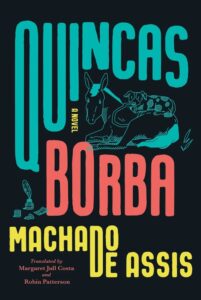
Joaquim Maria Machado de Assis, tr. Margaret Jull Coasta & Robin Patterson, Quincas Borba
Liveright, July 9
A new translation of Machado de Assis, one of South America’s most celebrated (and wonderfully bizarre) writers is excellent news. Jull Costa and Patterson’s excellent translation of The Posthumous Memoirs of Brás Cubas was playful, extremely funny, and deeply weird, so I’m looking forward to picking up this satire of wealth and progress (or perhaps “progress”?) in nineteenth century Brazil. –JG
Stacey D’Erasmo, The Long Run: A Creative Inquiry
Graywolf, July 9
For those of you who are creatively inclined it is not difficult to recall a time—in college, in your early twenties, perhaps—when you felt boldly energized by the idea (and practice) of making art, the feeling that you’d find the purpose of your life. And then jobs happened, and life, and it became harder and harder to return to that feeling… Facing her own questions about art-making and aging, writer Stacey D’Erasmo interviewed some truly brilliant—and old—artists about what has kept them going: from Merce Cunningham to Samuel R. Delany to Steve Earle to Taniá Leon the answers are as surprising and delightful as they are consistently similar. –Jonny Diamond, Editor in Chief
Jesse Katz, The Rent Collectors: Exploitation, Murder, and Redemption in Immigrant LA
Astra House, July 16
As previously recommended: Teenaged wannabe gangster Giovanni botches a hit, instead killing a newborn child in Los Angeles, and is in turn dragged over the Mexican border to be killed. Only that goes wrong too, and Giovanni sets off to bring the gang to justice. This true story looks at what a death is worth and how a crime can be forgiven. –JM
Halle Butler, Banal Nightmare
Random House, July 16
Bulter (The New Me) is always biting and dark, but fun (in a depressing way). In her new novel, Moddie moves back to the Midwest after breaking up with her miserable long-term boyfriend, throwing herself at the mercy of her old friends and their lackluster lives. Everyone is unhappy, marriages are falling apart, emails are passive aggressive, and even a mysterious East Coast artist at the local university can’t jolt anyone awake. Another example of Bulter’s expert ease at creating unlikeable characters and satirizing the millennial generation. –Emily Firetog, Deputy Editor
Eugene Lim, Fog & Car
Coffee House Press, July 16
As previously recommended: Eugene Lim’s debut comes back into print, thanks to the fine folks at Coffee House Press! Fans of Dear Cyborgs and Search History will be delighted to see the genesis of Lim’s searching and curious style, in a novel that follows a couple after their separation who can’t help continue to haunt each other’s lives through strange and surreal occurrences, rendered in strange and surreal prose. –DB
Brad Watson, There is Happiness
W.W. Norton, July 16
The wonderful Southern writer Brad Watson—funny, strange, and criminally underread, in my opinion, despite his accolades, but beloved by those in the know—died in 2020 at only 64. What a joy to discover there is more work to come from him, in the form of this posthumous collection of stories, including some that were previously unpublished. It’s introduced by Joy Williams, which should give you a sense, but even better to take this as an opportunity to read (or re-read) Watson’s whole oeuvre. –ET
Lev Grossman, The Bright Sword
Viking, July 16
As previously recommended: I mentioned the summer of Arthur earlier—here’s the big one, the tentpole, the book I’ve been waiting for nearly a decade: Lev Grossman’s Arthurian epic, clocking in at nearly 700 pages and absolutely worth lugging to the beach/the mountains/the park/wherever else you might be vacationing. I’m happy to report that this book is not only one of the best of the year, but it’s one of the best Arthurian novels ever. Stand it up against The Once and Future King or The Mists of Avalon and I’d be willing to bet that it will come away the victor—it’s that good.
Probably because it doesn’t bother with trying to tell the stories you’ve already heard a thousand times, but instead it picks up with a young knight on his way to Camelot to join the Round Table, only to find that nearly everybody is dead or gone and the only knights left are a rag-tag bunch from the edges of the well-known tales. Grossman uses these characters to show different angles Arthur’s court, to bring more diverse voices into the legend of the Round Table, and to craft a story that genuinely answers the question of why Arthurian legend continues to speak to us across the centuries. It’s this generation’s great Arthur story and a rich reminder of the power we have—maybe even the responsibility—to reshape legend. –DB
C. Michelle Lindley, The Nude
Atria Books, July 23
If there’s one thing that’s true throughout the Western literary canon, it’s that a trip in Greece is never going to be simple. This debut novel is set on a Greek island off the southern coast, where an art historian is seeking a rare sculpture: the nude. But the trip gets complicated quickly, and the disoriented historian is ensnared by the sensuous island and pulled in by an enthralling and subversive female artist, forcing her to grapple with her place in the art world. What trip to the Mediterranean would be complete without a sensual and provocative examination of your own role in global systems of capital and ownership? –JF
Shalom Auslander, Feh: A Memoir
Riverhead, July 23
As previously recommended: Yiddish for “Yuck,” Feh tells the story of Auslander’s upbringing in Monsey, New York by a dysfunctional Orthodox Jewish family, and recounts “his attempt to exorcize the story he was raised with—before he inflicts it onto his children and/or possibly poisons the relationship of the one woman who loves him.” Featuring Phillip Seymour Hoffman, a Pulitzer-winning poet, Job, Author Schopenhauer, Wolf Blitzer, and the pastor of a now-defunct church in LA, the memoir promises to be as funny and heartfelt as his other books. –Emily Firetog, Deputy Editor
Sarah Manguso, Liars
Random House, July 23
There’s rarely been such a plethora of divorce books in one season, but 2024 just keeps them coming. There’s been a marked uptick in the portrayal of marriage falling apart these past months, and it’s still not slowing: Leslie Jamison’s Splinters, Lyz Lorenz’s This American Ex-Wife, and Miranda July’s All Fours all center dissolution and renewal, looking back while trying to look forward, and ultimately: choosing oneself over the union. Liars joins the oeuvre: written in Manguso’s trademark short prose, it depicts the story of her marriage through every up and down, every small moment of connection, every mundanity. Manguso’s marriage can read as both rife with red flags, and in another sense, a totally normal marriage, packed with disappointments and joys in every direction. When the end does come, it manages to still be a surprise to Manguso, even through every sign and symptom of disconnection and separation, reminding the reader marriage is largely a belief system. It’s only when someone stops believing that it all comes apart, but the faith can be tested only so many times. –JH
Keanu Reeves & China Mieville, The Book of Elsewhere
Del Rey, July 23
As previously recommended: I still can’t believe this book exists. Miéville and Reeves turn out to be a great match, and I for one will take new Miéville fiction however I can get it. Come for the action set-pieces and techno-thriller plotting but stay for the immortal pig(!) and the stirring digressions on ethics, morality, and humanity. It’s nothing like you could possibly expect, so don’t even bother: just dive in.–DB
Anne Applebaum, Autocracy, Inc.
Doubleday, July 23
Between autocracy and climate change we really are in the middle of a long, slow boil (we would be the frogs in this metaphor, I’m afraid to say). Speaking to the former, Anne Applebaum’s latest is a warning as to just how close we are to a subtler, more pervasive form of autocratic power, more fluid, easier to globalize. Shining a light as it does on the transnational networks—technological, financial—that abet the consolidation of power in the hands of the few, to the detriment of everyone else, Autocracy Inc. is an important read (even if you don’t agree with Applebaum about who, exactly, the villains are). –JD
Willy Vlautin, The Horse
Harper, July 30
The seventh novel from award-winning, horse-loving, Oregon-based writer Vlautin (Lean on Pete) is the story of a grizzled former musician, living in tortured isolation in the high desert of central Nevada, whose descent into madness and despair is interrupted by the arrival on his doorstep of a blind (and possibly phantom) horse. Billed as a “poignant meditation on addiction, heartbreak, and the reality of life on the road in smalltime bands,” The Horse sounds like a beautiful addition to Vlautin’s stable of books about, as Ann Patchett once put it, “people overlooked by society and overlooked by literature.” –DS
Jessica Anthony, The Most
Little, Brown, July 30
As previously recommended: Another short novel that takes place in a single day—this may be the perfect summer form. In it, a housewife gets into the pool of her apartment complex—it’s a freakishly warm November day in 1957—and refuses to come out. The book slips between her perspective and that of her bewildered husband, neither of whom, it soon becomes clear, has been being completely (or even slightly) honest with the other. The whole thing has the extraordinarily pleasurable texture of gossip, wrapped up in the slightly eerie texture of a Cheever story. I read it straight through. –ET

Ilan Pappé, Lobbying for Zionism on Both Sides of the Atlantic
One World, July 30
The latest work from esteemed Israeli historian and social activist Ilan Pappé (The Ethnic Cleansing of Palestine) is an examination of how the Israel lobby has, for over a century, “convinced British and American policymakers to condone Israel’s flagrant breaches of international law, grant Israel unprecedented military aid and deny Palestinians rights.” As Israel’s brutal assault on Gaza enters its ninth month, as AIPAC-funded American politicians on both sides of the aisle continue to excuse a genocide, as the Israel lobby perverts our elections with more vigor than ever, this book could not be more timely or essential. –DS
Dinaw Mengestu, Someone Like Us
Knopf, July 30
The fourth novel from the multi-award winning Mengestu is the story of Mamush, an Ethiopian American former journalist who returns from Paris (where his marriage is fraying) to the close-knit immigrant community of Washington, DC, that defined his childhood. When Samuel, the beloved-but-troubled family friend who turned out to be Mamush’s biological father, dies suddenly, Mamush (with the ghost of Samuel in his ear) sets out on a journey across America in an effort to understand both the mysteries of Samuel’s life, and the buried secrets of his own early childhood. I’ve been hearing wonderful things about this one for months now and can’t wait to check it out. –DS
Siân Hughes, Pearl
Knopf, July 30
Hughes’ gorgeous novel was long-listed for The Booker Prize last year, and is going into a new, Knopf printing this year. The book follows Marianne, who is fixated on her mother who went missing when Marianne was just eight. Marianne discovers “Pearl,” a poem from the Middle Ages preserved in a manuscript alongside Gawain and the Green Knight. Marianne sees her grief and love reflected in the preserved, 14th-century lines, and attempts to illustrate it, drawing her closer to her pain. She’s drawn as well to an abandoned chapel, where another discovery begins to erode her memories and assumptions. Hughes’ placid and deep novel chains sorrows to each other as the narrative unfurls, creating a delicate tether connecting moments of loss. –JF
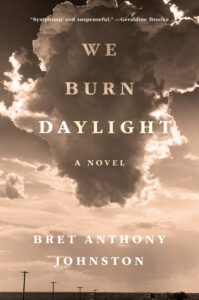
Bret Anthony Johnston, We Burn Daylight
Random House, July 30
That setting tells you straightaway what this one’s going to be about: the Branch Davidians, the Waco siege, and the ordinary lives caught up in a flash-point moment that will reverberate for a generation to come. We Burn Daylight uses the perspectives of two star-crossed lovers—the sheriff’s son and the unbelieving daughter of a cult member—to navigate the complexities of the showdown, for a moving and epic tale. I would expect no less from Johnston.–MO
August
Jane Alison, Villa E
Liveright, August 6
As previously recommended: The latest novel from Alison, author of, most recently, the excellent craft book Meander, Spiral, Explode, is itself a kind of spiral, as two aging artists (based on Irish designer Eileen Gray and Swiss architect Le Corbusier) circle around the past, and the single villa—with its spiral staircase—that has been at the center of their conflict for thirty years. But aside from the historical anecdote itself (once described as an “act of naked phallocracy”), the most interesting aspect of the book is the way Alison represents these two different consciousnesses on the page—their slipstream thoughts, both recursive and immediate, but each distinct, pinning their bodies in space. –ET
Helen Phillips, Hum
S&S/Marysue Rucci Books, August 6
If you want to know what the near future looks like, pick up any Helen Phillips novel. Her books straddle the concerns of contemporary life with those of a future wrapped up with the pervasive nature of technology, disastrous climate change, and our increasing curiosity with AI. In Hum (which refers to the intelligent robots that populate the novel), May loses her job to AI. To lessen her family’s debt, she becomes a guinea pig in an experiment that alters her face so it can’t be recognized by surveillance. The family comes together for three nights inside the rare and beautiful “Botanical Garden” but the caveat is that they all have to leave their devices as home. A smart page turner about “a world of both dystopian and utopian possibilities.” –EF
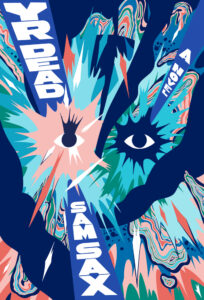
Sam Sax, Yr Dead
McSweeney’s, August 6
As previously recommended: Bildungsroman, anyone? Bildungsroman? This lyrical novel in fragments tells the story of a life from the vantage point of the narrator’s final moments. Ezra is a queer, Jewish person carrying out their last act of protest. While they experience their last moments, they also experience their entire life as their memories spill out before them. From diaspora and desire to history and generational trauma, Yr Dead earnestly explores the things that make us human and alive while the story rushes headlong into death. –McKayla Coyle, Publishing Coordinator
Lena Valencia, Mystery Lights
Tin House, August 6
Strange stories “at the crossroads of mundane daily life and existential dread”? Who among us hasn’t waited at that exact intersection in these troubling and eerie times—and Lena Valencia’s work delivers exactly the right dose of Lynch-meets-Link for this moment. –DB
Orlando Whitfield, All That Glitters: A Story of Friendship, Fraud, and Fine Art
Pantheon, August 6
There’s no subculture more fascinatingly chaotic than the art world, with its incomprehensible swings, brilliant (or hackneyed) schemes, multimillion-dollar trends, and floor-to-ceiling personalities, both in the studios and in the galleries. This book by Orlando Whitfield—whose bio on the back identifies him as “a failed art dealer”—gets into all that through the story of Whitfield’s friend and one-time business partner Inigo Philbrick, who would become part of the biggest art fraud in US history. Irresistible. –ET
Casey McQuiston, The Pairing
St. Martin’s, August 6
It wouldn’t be summer without a big romance novel and McQuiston, blockbuster author of One Last Stop and Red White & Royal Blue, is here to deliver the chaotic bisexual European romp we all deeply need. Two exes end up on the same food & wine tour across the continent and challenge each other to a hookup competition (while maybe secretly still pining for one another)? Come on. –DB
Gabino Iglesias, House of Bone and Rain
Mulholland, August 6
As previously recommended: Five teenage boys set out to get revenge on the biggest gang in Puerto Rico after one of their mothers is murdered—just in time for a massive hurricane to sweep down onto the island. Trust Gabino Iglesias to deliver pulse-pounding scares, unflinchingly bloody violence, and achingly beautiful moments of friendship and humanity. –DB
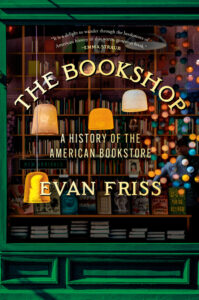
Evan Friss, The Bookshop
Viking, August 6
Chances are, if you’ve found yourself on this site, then this book is for you: an attentive and thoughtful study of the bookshop and its long, storied history. The Bookshop reaches into the depths of the past and illuminates this worthy subject with archival research, oral histories, interviews with booksellers, and more. Evan Friss is the companionable guide we all deserve on this trip to bookstores throughout time, offering a treasure trove of information and anecdotes, and bittersweetly reminding us all how important these institutions are, how necessary to our culture and communities and how we must do everything in our power to protect them. Head straight to your local independent bookstore to support the cause, or pick it up on Bookshop! –JH
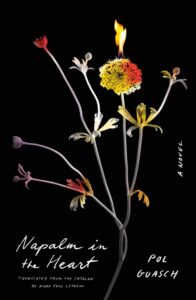
Pol Cuasch, tr. Mara Faye Lethem, Napalm in the Heart
FSG, August 13
Not to be a simp, but I’ll read anything that Catherine Lacey (Biography of X, Pew) recommends. If she says Pol Cuasch is “one of the best young writers working today,” then I believe her! Napalm is about a war-torn, apocalyptic near future. The story follows a young man living with his traumatized mother who must leave home and trek into danger to find his lover. I’m not always a fan of apocalypse lit, but I love queer stories and messy mother stories and this book is both so I’m about it. Sometimes you need a little emotional devastation, as a treat. –MC
Nathan Newman, How to Leave the House
Viking, August 13
Sometimes what you really need is a full-on caper—what happens, for instance, when the day before leaving home at last for university, an aspiring artist called Natwest finds that an important package (a sensitive package) has gone missing at the post office—the box swapped with one belonging to his mother’s boss. As Natwest seeks his special item, the novel collects a series of idiosyncratic characters, whose lives and loves and thoughts about art build to a hilarious cacophony not unlike our own. –ET
Yoko Ogawa, tr. Stephen Snyder, Mina’s Matchbox
Knopf, August 13
If you loved The Memory Police, you’ll be excited for Ogawa’s “hypnotic, introspective novel” about twelve-year-old Tomoko, who visits her wealthy Aunt’s home (featuring dozens of rooms, German furniture, and a pygmy hippopotamus) in a Japanese coastal town. Tomoko and her cousin Mina decipher the world around them: the family’s strange dynamics, her uncle’s absences, her aunt’s misery, and her great-aunt’s experience of the Second World War, in a coming of age story that’s sure to be transformative. –EF
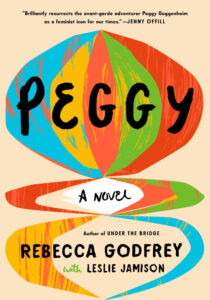
Rebecca Godfrey, with Leslie Jamison, Peggy
Random House, August 13
Leslie Jamison was recently called upon to do one of the most rare and remarkable things a friend can do: when her friend, the author Rebecca Godfrey, was diagnosed with cancer, Godfrey asked Jamison to finish her novel in case of her death. Jamison wrote a gorgeous and moving piece for the New Yorker detailing this work, this supreme act of love as a ghostwriter, what it was to take on her deceased friend’s work and mind and voice. The result is Peggy: a story about the daughter and heiress to the Guggenheim fortune and her artistic and romantic exploits, and her quest to find her own direction and vision despite the pull and sway of her family name. Pick it up for the high society family dramas, for the coming-of-age antics, for the preening and prestigious art world depictions, or for the beauty of the writing itself, the two minds that came together to produce this work of exploration, intrigue, and self-discovery. –JH
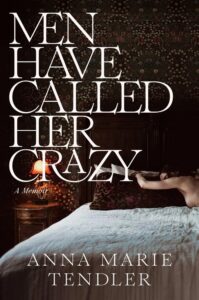
Anna Marie Tendler, Men Have Called Her Crazy
Simon & Schuster, August 13
When Anna Marie Tendler first announced she’d be writing a memoir, it was met with a flurry of excitement and interest from many, more than a few of whom I would imagine were rabid for gossip about a certain comedian. As a PSA: this book contains absolutely no mention of Tendler’s ex-husband. Having no understanding of what a celebrity divorce must entail, I can only imagine there are some pretty air-tight NDAs involved and this book is a clear consequence. Muckrakers can now know to seek scandal elsewhere, but those who are interested in a clear-eyed portrayal of mental health and eating disorders and emotional trauma will be rewarded: Tendler is an admirable narrator through such tough topics, blunt about the past but gentle about the present, and hopeful, ever hopeful, about the future. –JH
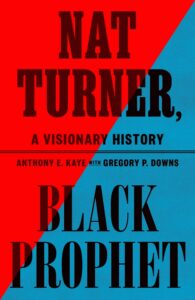
Anthony E. Kaye, with Gregory P. Downs, Nat Turner, Black Prophet
FSG, August 13
Billed as the most definitive account yet of Nat Turner’s 1831 slave rebellion, the late historian Anthony E. Kaye focuses here on the visionary, spiritual side of Turner’s call to arms (he was an enslaved preacher, after all), placing his life in the context of 19th-century Methodism and its integrated spaces. Turner’s divine visions—and the violence they inspired—would change the American South for generations.–JD
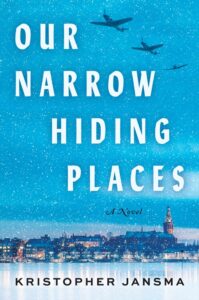
Kristopher Jansma, Our Narrow Hiding Places
Ecco, August 13
With his earlier novels Jansma has proven himself to be a delightful storyteller (or rather, at least, aware of the need to delight the reader, even amidst heavier subject matter), and has always been able to balance humor with substance. As a novelist, these are invaluable instincts, regardless of subject matter, but should come in particularly handy with Jansma’s latest, the story of a family coming to terms with its matriarch’s brutal experiences during the Second World War, and how they would shape the lives of generations to come. –JD
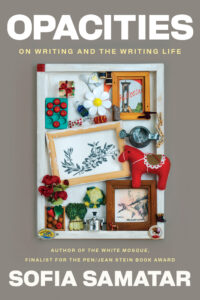
Sofia Samatar, Opacities: On Writing and the Writing Life
Soft Skull, August 13
Author of The White Mosque Sofia Samatar returns with Opacities to deliver a wide-ranging, epistolary collection on writing, identity and friendship. Samatar uses the medium of letters between her and a friend to reclaim the intimacy of writing, recognizing the care and exploration and genuine discovery that can be rooted in that act. Samatar and her friend discuss their literary idols, their publishing fears, the tendency to feel ingenuine when producing in the literary world, and circles the question of how to remain true to one’s voice within these complicated circumstances. A unique exploration of craft and authenticity, Opacities offers its wisdom through these perennial questions and answers. –JH
Fiona McFarlane, Highway Thirteen
FSG, August 13
A linked story collection about a serial killer—following families, victims, podcasters and more. I’m always a sucker for linked short stories and I’m excited to see a new take on our culture’s obsession with true crime. –DB
Jo Hamya, The Hypocrite
Pantheon, August 13
As previously recommended: I was instantly pulled in by the ingenious structure of this novel: a famous novelist, lately getting flak for being Old and White and Male, sits down in a theater to watch a play written by his daughter Sophia, which he soon realizes is based on a vacation the two of them took when she was a teenager. Meanwhile, Sophia, the playwright, has dinner with her mother, who is recounting the months she cared for her ex-husband after lockdown. In between, we get pieces of the play itself and of Sophia’s actual memories of that vacation, as all the various strands braid into a fraught, compelling conversation, not just between parents and children, but between generations, and even between modes of art and understanding. –ET
Danez Smith, Bluff
Graywolf, August 20
Few poets land more vibrantly and playfully on the page than Danez Smith and their latest might be their most audacious yet, full of not just poetry but mixed media as well a la Claudia Rankine. If anybody can figure out how to celebrate life in a society that devalues it at every turn, I bet on Smith. –DB
Rosie Schaap, The Slow Road North: How I Found Peace in an Improbable Country
Mariner Books, August 20
In the span of thirteen months, food and drink writer Rosie Schaap’s husband and mother died. In the wake of her grief, she visits Ireland on assignment and feels—something. Something lovely and warm and inviting (a feeling that rings very true, to someone who also by accident spent many years living in that country) and then decides to move there. She ends up in Glenarm, a small village in Northern Ireland, and in chronicling her life perfectly describes her grief and (literal) moving on after loss. This is a beautiful memoir with gorgeous descriptions of the countryside, the locals, and the complex emotions that come from devastating loss. –EF
Gayl Jones, The Unicorn Woman
Beacon Press, August 20
Gayl Jones, a 1970s literary wunderkind whose first novel, Corregidora, was edited by Toni Morrison (“no novel about any black woman could ever be the same after this,” Morrison said of the debut) and praised by James Baldwin, burst back onto the scene in 2021 after a twenty-two-year absence. In the three years since, Jones has been named a finalist for both the National Book Award and the Pulitzer Prize. Her new novel, The Unicorn Woman, is the story of Buddy Ray Guy, a Black WWII veteran and “true self-educated intellectual” who returns to the grim world of the Jim Crow South in search of meaning. –DS
Alexis Pauline Gumbs, Survival is a Promise: The Eternal Life of Audre Lorde
FSG, August 20
I mentioned this book in the first-half anticipated list and I’ve now had a look at the galley—and holy cats, folks. Gumbs, one of our great poets, has delivered not only a masterful biography of Audre Lorde but a revolution in what a biography can be. Whether you only know Lorde through her most famous quotes or if you’ve read everything she wrote a thousand times, there is something new and exciting here for you. Structurally playful, deeply researched, vibrantly felt, it’s a masterwork all around. –DB
Elif Shafak, There Are Rivers in the Sky
Knopf, August 20
As previously recommended: Shafak’s latest is a sweeping, historical novel about three characters whose lives are entwined by the epic of Gilgamesh. Moving from the 19th century to the present, from the River Thames to the River Tigris, this novel is both expansive and tender. Exploring love, memory, healing, and change, There Are Rivers in the Sky is an enthralling novel by the internationally bestselling Elif Shafak. –MC
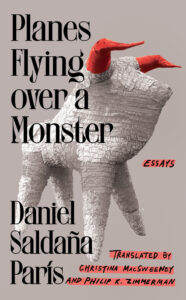
Daniel Saldaña París, tr. Christina MacSweeney & Philip K. Zimmerman, Planes Flying Over a Monster
Catapult, August 20
I love reading about a person’s interaction with a city—we all experience them differently, at different times in our lives, etc—and this collection of nine essays about different cities Saldaña París has lived in (and the lives he has lived within them) is right up my alley. Plus, that title and that cover, it all just screams READ ME! –DB
Jesse Q. Sutanto, You Will Never Be Me
Berkley, August 20
Everything that Jesse Q. Sutanto turns her hand to is gold, and You Will Never Be Me is no exception. In this vicious psychological thriller, two influencers face off against one another in a battle for the ages. Meredith and Aspen are friends-turned-bitter rivals, their laundry list of resentments eclipsing their once-powerful bond. When one goes missing, the other falls under suspicion, but there’s plenty of twists and turns before we find out what’s really going on. –MO
Kyle Minor, How to Disappear and Why: Essays
Sarabande Books, August 27
I’ve been reading Kyle Minor’s short fiction for decades. When I worked in literary magazines his name was always cropping up on the TOC of the best and most interesting publications. Praying Drunk, his last collection of stories, was a (great) sad book about very sad people. His new collection of nonfiction stays on theme and centers on the concept of disappearance. From “Ghosts (think Shakespeare and The Sixth Sense), lost temples, and professional erasure to strategic exile, these essays dig deep into the cultural and historical archives of our civilization.” –EF
Djamila Ribeiro, tr. Padma Viswanathan, Where We Stand
Yale University Press, August 27
Part theory, part manifesto, part history of Black feminist thought, Djamila Ribeiro’s hugely popular take on racial and gender identity in Brazil—translated by Padma Viswanathan—has the makings of a truly modern feminist classic.–JD
September
Rachel Kushner, Creation Lake
Scribner, September 3
Ahem, Rachel Kushner wrote a secret agent book, and set it in France. What more must we know to anticipate it? Nothing, because no doubt, like nearly everything she writes, it will be an intellectual masterpiece while also reinventing a genre while also being wildly entertaining. That’s kind of her thing. –ET
Garth Greenwell, Small Rain
FSG, September 3
Garth Greenwell is one of our best contemporary prose stylists (due in part, no doubt, to his previous life as a poet), and a new book from him is always a cause for celebration. This novel, in fact, concerns a poet, who suddenly, and with no explanation, finds himself in incredible pain. No doctors can find the source, which makes the book hum with urgency, but of course the real questions Greenwell tackles here are much more metaphysical, though no less urgent—all of the questions of life, love, time, mortality, consciousness made crystalline. –ET
Chris Knapp, States of Emergency
Unnamed Press, September 3
Technically, Knapp’s debut is about a young couple—one French, one American—trying to conceive, but like any attempt to change the world, it’s more complicated than it seems. The novel feels like it shares some Sebaldian DNA—we find stimulating diversions into history at every turn in the road—and does at times achieve a similar effect, except that a lot of the history in question here is ongoing, and mediated by technology: terrorist attacks in Paris, a police standoff in in Charlottesville, the feeling of trying to make a life anywhere against the low hum of contemporary apocalypse. (Though sometimes it’s quite funny, too.) All this, along with the central love story, creates an emotional current that only increases the book’s potency. –ET
Danzy Senna, Colored Television
Riverhead, September 3
As previously recommended: In Danzy Senna’s latest, a novelist and her family are “housesitting” in the fancy L.A. home of an old friend, Brett—who was once a writer, like Jane, but gave it all up to make television about zombies. In his well-appointed office, she finally finishes the book she’s been working on for a decade—a sprawling, enormous manuscript that her husband calls her “mulatto War and Peace“—and sends it off to her agent, only to be . . . let’s say disappointed. On a whim, Jane contacts Brett’s film agent, and winds up running ideas with a big-shot producer who wants to make “the Jackie Robinson of biracial comedies”—but soon, things begin to get weird, and then bad, and then very bad. True to form for Senna, this is a hilarious and also distinctly melancholy novel, witty and profound about class, race, and artmaking. You’ll laugh, you’ll gasp, you’ll cringe, and whisper no no no at the page, and most importantly, you’ll keep reading, even when you could be watching television. –ET
Chelsea Bieker, Madwoman
Little, Brown, September 3
Madwomanis a harrowing psychological thriller about a mother determined to keep her past a mystery to husband and children, only to find herself forced to confront her darkest secrets when a figure from her childhood crawls out of the woodwork and threatens to expose all. Chelsea Bieker’s fierce literary style makes for a perfect match with the thriller form, and her careful plotting leads to a genuinely surprising conclusion. –MO
Renee Gladman, My Lesbian Novel
Dorothy, September 3
I’ll follow Renee Gladman anywhere. Her form-breaking books are otherworldly in their glories and when I found out she was writing a romance novel (well, sort of), I decided I didn’t need to know a single thing more and immediately ordered it. Of course, it is far stranger and trickier than that—but it’s also Renee Gladman tackling the hot genre!! Let’s go!! –DB
Coco Mellors, Blue Sisters
Ballantine, September 3
Cleopatra and Frankenstein was one of those books that lived up to the hype for me and Blue Sisters shot to the top of my fall hype list accordingly. Coco Mellors has a gift at capturing the high drama of the mundane and I can’t wait to see how she tackles a family grief drama. –DB
Vigdis Hjorth, tr. Charlotte Barslund, If Only
Verso, September 3
The Norwegian author of Long Live the Post Horn! and Will and Testament has formed a small but formidable cult following in the US, and If Only should only grow their army. If Only starts off with enigmatic and addictive words of love and death that call to mind our favorite doomed affairs—painful and poetic, cursed and necessary, we must go back in time to understand how our heroine found herself on the brink, caught between passion and ruin. –JH
Agota Kristof, tr. Chris Andrews, I Don’t Care
New Directions, September 3
At least twice a year I recommend Agota Kristof’s dark classic, The Notebook. So please don’t bother me once I get my hands on this, a collection of short (and very short, apparently) stories, which, we are told, are “austere and minimalist, with a poetic force that shifts the walls in the reader’s mind.” Yes please. –JD
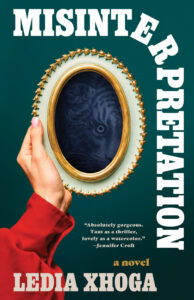
Ledia Xhoga, Misinterpretation
Tin House, September 3
In which an unnamed Albanian interpreter becomes enmeshed in the life of one of her clients, a Kosovar torture survivor, and reality begins to shift and blur. “If in the twenty-first century, Kafka had moved from Prague to Brooklyn, Misinterpretation is the novel I believe he would have written,” writes Tom Grimes. “She captures acorollary world to the one Josef K. inhabits in The Castle, but rather than not being able toreach the castle, Xhoga’s nameless protagonist finds herself living in the castle, a polyglotculture in which everyone misinterprets what everyone else says and does; some residents even misinterpret their own emotions.” Sold. –ET
Ariane Koch, tr. Damion Searls, Overstaying
Dorothy, September 3
Narrated by a “female Bartleby” (I’m listening…) stuck in her childhood home, in a hometown she hates—until a (very) strange visitor becomes her houseguest and obsession. Overstaying is not a plot book, which doesn’t mean you won’t race to the end. Koch is a Swiss playwright and visual artist, and her debut novel is a slim, dreamlike, and bizarre—a in short, a perfect escape from all you’re looking to escape. –JG
Attica Locke, Guide Me Home
Mullholand, September 3
In the final chapter of the Darren Matthews saga, the Texas Ranger is drawn into the investigation of a Black woman’s disappearance, with her white sorority sisters claiming she isn’t missing at all. As with all the installments of this powerful series, history and family legacies and class divisions get all tangled up to produce something distinctly and disturbingly American. Locke has produced a fitting conclusion for one of the era’s defining mystery characters. –DM
Eavan Boland, ed. Jody Allen Randolph, Citizen Poet: New and Selected Essays
W.W. Norton, September 3
With selected essays from two earlier collections paired with later work, including an essay she was working on when she died, Citizen Poet is a great chance to spend time with the mind of one of Ireland’s great poets, Eavan Boland. Aside from breaking through the glass ceiling of Irish poetry, Boland was also an accomplished critic, outspoken activist, and yes, a true citizen. –JD
Laszlo Krasznahorkai, tr. Ottilie Mulzet, Herscht 07769
New Directions, September 3
A new novel from the brilliant and bizarre Krasznahorkai is always worth anticipating; this one comes in the form of a single sentence, in which “gentle giant Florian Herscht” considers “neo-Nazis, particle physics, and Johann Sebastian Bach,” not to mention the end of the world. –ET
Peter Godfrey-Smith, Living on Earth: Forests, Corals, Consciousness, and the Making of the World
FSG, September 3
Eco-philosopher Godfrey-Smith is here to help us reconceptualize our place on Earth. Sure, humans have evolved really big brains (so we can scroll Tik Tok?)—but what about the broader “consciousness” of the planet itself? In examining all manner of life—from gorillas to coral reefs—and how its many parts make a single whole, Godfrey-Smith seeks to catalyze a radical shift in human perspective, before it’s too late. –JD
Edwidge Danticat, We’re Alone: Essays
Graywolf, September 3
Danticat’s luminous, heart-forward prose tends to stick to the ribs. (Krik? Krak! stays an all-time favorite in this house.) So I’m very keen to read her new, highly personal work. This collection of essays gathers odes, childhood reflections, and reported pieces under a big umbrella. In its pages, Danticat illuminates political crises via personal ones, and vice versa. –BA
Kate Atkinson, Death at the Sign of the Rook
Doubleday, September 3
Yorkshire’s best ex-detective is finally back in this hotly-anticipated continuation of Kate Atkinson’s Jackson Brodie series. This time, he’s bored, with nothing but an art theft to work on… but it leads him down a dark and twisty path to Burton Makepeace, a dilapidated former estate that now hosts murder mystery weekends. Delightful! –OR
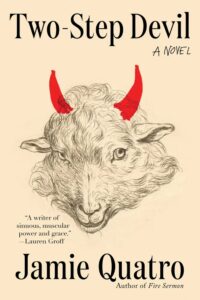
Jamie Quatro, Two-Step Devil
Grove, September 10
At last, a new Jamie Quatro—the latest book from the author of the brilliant collection I Want to Show You More and the Very Sexy (and also brilliant) Fire Sermon, both of which are interested in the divine, and also in the body, and also in extraordinary sentences, is a novel about a seventy-year-old man called the Prophet, who has visions, and a girl named Michael, and, well, the devil (maybe). One way or another, this is sure to be an ecstatic experience. –ET
TJ Klune, Somewhere Beyond the Sea
Tor, September 10
As previously recommended: Klune returns to the world of The House in the Cerulean Sea to follow Arthur, the caretaker of the magical orphanage that so enraptured a legion of readers, as he must return to the mainland and take a stand to defend his found family. Expect tears, laughter, and a feeling of glowing warmth so lovely you’ll never want to leave. –DB
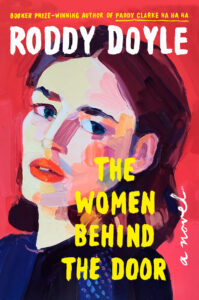
Roddy Doyle, The Women Behind the Door
Viking, September 10
Regular readers of Roddy Doyle, who won the Booker Prize in 1993 for his novel Paddy Clarke Ha Ha Ha, will recognize the heroine of his latest novel—it is Paula Spencer, who first appeared in print (even earlier she lived as a character in Doyle’s TV miniseries Family) as a woman with an abusive husband in 1996’s The Woman Who Walked into Doors; a sequel was published in 2006, picking up a decade after her husband’s death. Now, Paula is sixty-six, and her daughter Nicola—perfect in every way, supposedly—has left her own family, and come to Paula for help, and with a secret. –ET
Cebo Campbell, Sky Full of Elephants
Simon & Schuster, September 10
A year after all the white people in America walked into the nearest body of water and drowned, a Black college professor meets his bi-racial daughter and they set off on a cross-country trip to better understand what happened. I love a good hooky slice of speculative fiction to help me better understand the real world, and it seems like Cebo Campbell’s debut will do just that. –DB
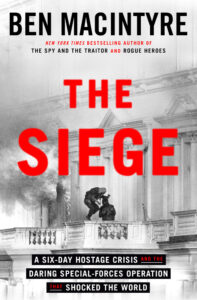
Ben Macintyre, The Siege: A Six-Day Hostage Crisis and the Daring Special-Forces Operation That Shocked the World
Crown, September 10
The latest book from Ben Macintyre—whom the New York Times has called “John le Carré’s nonfiction counterpart”—centers on a hostage crisis within a hostage crisis: the days in 1980 when a group of armed men seized the Iranian embassy in London, taking 26 hostages. Six days later, it would all come to a dramatic conclusion. “Ben Macintyre has established himself as the preeminent historian of the secret world, his work opening doors most of us didn’t know were there,” writes Mick Herron, author of Slow Horses. “His books have set the gold standard for accurate historical reporting, but read like heart-pounding thrillers.” Best of both worlds. –ET
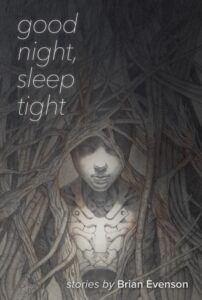
Brian Evenson, Good Night, Sleep Tight
Coffee House, September 10
New Brian Evenson! What more needs saying? The prolific master of the eerie and strange can terrify and delight at any length, but his story collections are always a feast for any reader. If you’ve never read Evenson but are a fan of George Saunders, Ray Bradbury, Jorge Luis Borges… now’s the time to rectify your mistake. –DB
Elizabeth Strout, Tell Me Everything
Random House, September 10
The Strout hive is strong, and no doubt it will be pleased with her latest novel, her fourth in five years, again set in Crosby Maine, home to Olive Kitteridge, Lucy Barton (the two of whom actually meet in this book), Bob Burgess, and all the rest. This is being billed as “a hopeful, healing novel,” which may be exactly what we need this fall. –ET
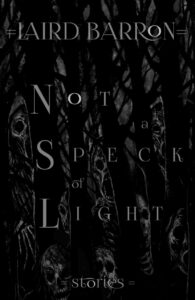
Laird Barron, Not a Speck of Light: Stories
Bad Hand Books, September 10
As previously recommended: For my money, Laird Barron is one of the best horror writers working—his particular grasp of the Weird speaks directly to the dark caves of my soul. His recent turn to noir with the Isiaiah Coleridge novels was a delight, but I’m excited to see him back at work in the form that terrifies me the most: a short story collection. –DB
Virginie Despentes, tr. Frank Wynne, Dear Dickhead
FSG, September 10
In a 2021 New Yorker profile, Emily Witt praised the French author Virginie Despentes’ punk queer feminist aesthetic. Despentes’ Vernon Subutex novels—which are sometimes described in the same breath as Nick Hornby’s High Fidelity—took France by storm in the 2010s. That bestselling trilogy follows an “aging bohemian cohort” as they navigate a brave new digital world. Whether the author is lambasting or relishing in a certain itchy-making Gen-X contrarianism may be up for debate. But the pulse in her prose is undeniable. Ditto the author’s sharp eye for social observation.
In her new novel, Despentes takes on sex, addiction, and rage from a familiar-sounding perch. Dear Dickhead follows Oscar, an embittered novelist, who winds up tangled in an angry Instagram correspondence occasioned by the surfacing of certain…allegations. Words like “provocative,” “excoriating,” and “guns-blazing” pepper the early press. I won’t lie; I’m very intrigued. –BA
Christine Rosen, The Extinction of Experience: Being Human in a Disembodied World
W.W. Norton, September 10
Who are we now that we live most of our lives online? Scarier still, as digital natives begin to outnumber the aging analogs among us, who are we becoming? These questions are central to Christine Rosen’s important new examination of humanity’s transition from the real to the virtual, an urgent interrogation of our increasing reliance on digitally mediated experience. –JD
Sebastian Smee, Paris in Ruins: Love, War, and the Birth of Impressionism
W.W. Norton, September 10
Show me the reader who doesn’t have a soft spot for 19th century European art monsters, and I will show you a liar. In this history, a Pulitzer Prize winning critic describes the rise and fall of the Paris Commune and traces its effect on the art world. I am so all aboard for this close read of a revolution, which aims to examine the intersection of politics and art. Did I mention this book also includes a love story, between movement heavies Manet and Morisot?!
Ideally to be read in a garret, near a roaring fire. –BA
Devika Rege, Quarterlife
Liveright, September 10
Set amid a rising tide of nationalism in Mumbai, Rege’s debut novel follows Naren, a Wall Street consultant who returns to India in pursuit of fortune, along with Amanda, an American who plans to put her ideals into action by teaching in Muslim-majority slum, and Naren’s brother Rohit, a filmmaker who becomes entangled in the world of the Hindu nationalist machine. Hailed by Vauhini Vara as ” a fiercely intelligent engagement with world politics and culture,” Quarterlife promises to be an essential read for this moment in history. –JG
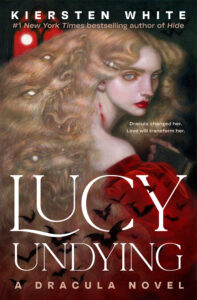
Kiersten White, Lucy Undying
Del Rey, September 10
Justice for Lucy Westenrea! Kiersten White finally gives us a version of the Bram Stoker character we can respect and love, in just one of the many excellent lesbian vampire novels coming out this year (is it hot lesbian vampire summer? Or perhaps, undead lesbian fall?). I loved Mister Magic, White’s strange and beautiful horror novel about childhood trauma and children’s television shows, and Lucy Undying is just as good—although waaay more gory. –MO
Paul Muldoon, Joy in Service on Rue Tagore
FSG, September 10
A new Paul Muldoon collection is always reason to celebrate. With his customary knife-edge balance of formal playfulness and politically charged erudition, Joy in Service sees Muldoon’s far-ranging poetic imagination roaming from the darkest cul-de-sacs of the war in Ukraine to the shipyards of Belfast to the last wild wolf of Ulster; no subject is too large (or too fine) for this poet’s sublime focus. –JD
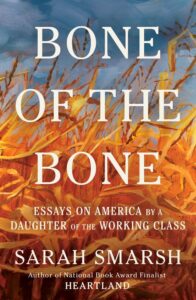
Sarah Smarsh, Bone of the Bone
Scribner, September 10
Kansas journalist and National Book Award finalist Sarah Smarsh (Heartland: A Memoir of Working Hard and Being Broke in the Richest Country on Earth) is one of this country’s essential voices on socioeconomic class, politics, public policy, and the rural-urban divide. Her new book of essays, Bone of the Bone: Essays on America by a Daughter of the Working Class, is a bumper collection of her reportage, cultural commentary, and personal essays, on topics ranging from America’s criminalization of poverty and our misconceptions about the Red Vs. Blue political divide, to working as a Hooters Girl and the socioeconomic implications of having “bad teeth.” –DS
Rebeca Nagle, By the Fire We Carry: The Generations-Long Fight for Justice on Native Land
Harper, September 10
For a “nation of laws” the United States has a very long history of ignoring them when it comes to Indigenous rights. In the name of land, power, and imperial expansion, it’s hard to find American treaties with Native nations that weren’t broken or ignored or abrogated in some unjust way or another. But as Rebecca Nagle’s history of the Muscogee people reveals, every now and then the law comes through: in this case, a 2020 Supreme Court decision (arising from a small town murder in the 90s) that saw the restoration of nearly half of Oklahoma to nations like the Muscogee and Nagle’s own Cherokee. Justice delayed, but justice nonetheless. –JD
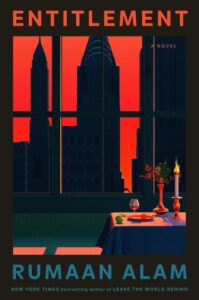
Rumaan Alam, Entitlement
Riverhead, September 17
Alam is quickly emerging as one of the best social novelists working today. Meaning, like Edith Wharton and Henry James before him, he is writing about nothing so much as money, as well as race, and class, and work, and the weirdness of contemporary life, and nowhere so much as in this novel, which is a book about what it means to be walking amidst old white billionaires, meaning it’s a book about what it’s like to be alive today. As engaging as it is unnerving. –ET
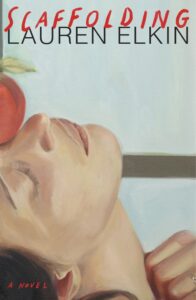
Lauren Elkin, Scaffolding
FSG, September 17
I’ve been a fan of Lauren Elkin’s nonfiction since I read Flâneuse, her book about women walking; I also devoured last year’s Art Monsters. So needless to say I’m very curious and excited to read her first novel, which is being pitched as “a novel of Paris, desire, love, psychoanalysis, and the turbulent affairs of two couples across time.” Yes, please. –ET
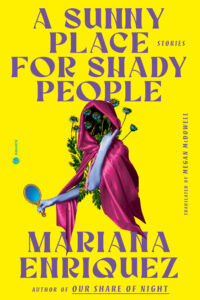
Mariana Enriquez, tr. Megan McDowell, A Sunny Place for Shady People
Hogarth, September 17
Our Share of Night was my favorite novel of 2023 and the Enriquez hype train should only keep rolling with this new collection of stories. Nobody does horror quite like Enriquez, whose stories linger at the edges of your consciousness long after they’ve ended—perhaps because of how she always keeps her focus on the human heart of her tales. –DB
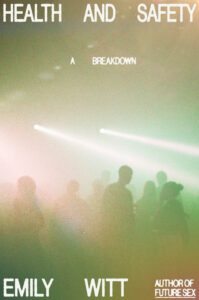
Emily Witt, Health and Safety
Pantheon, September 17
New Yorker staff writer and author of Future Sex Emily Witt is back with a book in which she documents her experiences doing what, in retrospect, we all should have done in 2016: quitting antidepressants, taking up psychedelics, and enmeshing herself in New York City’s underground dance scene. I’m looking forward to finding out what she discovered down there. –ET
Oliver Radclyffe, Frighten the Horses
Grove/Roxane Gay, September 17
I had the pleasure of hearing Oliver Radclyffe read from his monograph Adult Human Male last year and it immediately turned me into a fan for life. His careful, funny, honest writing about his experience of transitioning and finding his authentic self makes for one of the best memoirs of the year. –DB
Paulina Bren, She-Wolves: The Untold History of Women on Wall Street
W.W. Norton, September 17
In this volume, historian and Vassar professor Bren tells the story of the early generations of women who broke into the world of finance, despite the cultural norms, institutional barriers, and—sometimes literal—door signs keeping them out. “Illuminating, exasperating, at times hilarious,” writes Mary Gabriel, “She-Wolves is a must read for anyone hoping to understand where women in the United States have been and how much further they have to go.” –ET
Tony Tulathimutte, Rejection
William Morrow, September 17
If you’ve read “The Feminist,” which was published in n+1 a few years ago, you know that Tulathimutte is incredibly attuned to the awkwardness of modern life, and can spin the most cringy, painful moments into brilliant satire. Rejection is a collection of very smart stories for the very online; in exploring “rejection,” Tulathimutte digs into the most basic of modern fears. But there’s no better advertisement for the book than this essay he published in The Paris Review online earlier this year on “the rejection plot,” craft, fiction, and internet lore. Read it, read everything. –EF
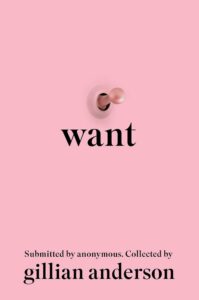
Gillian Anderson, ed., Want: Women’s Fantasies in the Twenty-First Century
Abrams Press, September 17
Playing a sex therapist on Sex Education has made an impact on actress Gillian Anderson: recognizing the need for more frank and open conversation about desire and intimacy, she’s compiled a new collection of anonymous sexual fantasies from women around the globe. Crowdsourcing fantasies from unnamed sources results in this steamy and unvarnished compendium of women’s deepest desires, without the lights on, without any gaze, without judgment or expectation. –JH
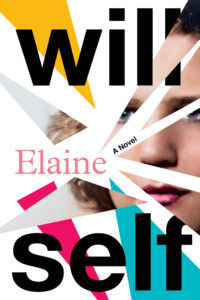
Will Self, Elaine
Grove Press, September 17
Will Self remains one of contemporary literature’s most fearless stylists, consistently outpacing his comfort zone from one novel to the next. With Elaine, Self attempts to unpack the inner life of his mother (using her actual diaries), a prototypical 1950s housewife wrestling with the limitations of her exceedingly proscribed existence. At once formally ambitious and deeply personal, Elaine has been described—in a coinage worthy of Self himself—as “perhaps the first work of auto-oedipal fiction.” – JD
Timothy Snyder, On Freedom
Crown, September 17
Freedom—or “freedom,” in its American context—is surely one of the most weaponized concepts of the 21st century. As historian Timothy Snyder, author of On Tyranny, points out in his new book, we have drifted perilously far from thinking about freedom as the preservation of possibility and instead view it as merely the absence of limits (“freedom from” rather than “freedom to”). This, of course, is bad, insofar as one of the freedoms most cherished by the ascendant American right is the freedom from responsibility: to the planet, to those less fortunate, and to future generations. –JD
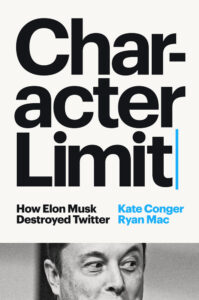
Kate Conger and Ryan Mac, Character Limit: How Elon Musk Destroyed Twitter
Penguin Press, September 17
Forgive me if one of my great (small) pleasures happens to be people dunking on Elon Musk: truly, there is no better avatar of this deeply embarrassing era of late-stage celebrity capitalism. Though there is much to mock, in all facets of his life, Character Limit—by tech journalists Conger and Mac—focuses on Musk’s petulant takeover of Twitter (aka “X,” the totally cool rebrand he came up with). But while it’s fun to openly deride the world’s most aggressively awkward billionaire, Character Limit reminds us how dangerous it is when one man’s hurt feelings nearly lead to the destruction of the digital townsquare. –JD
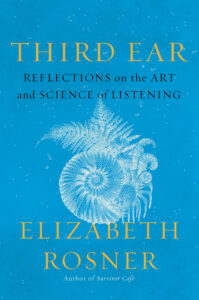
Elizabeth Rosner, Third Ear: Reflections on the Art and Science of Listening
Counterpoint, September 17
To masterfully blend memoir with science writing is to create one of the most compelling kind of book—one whose insights are both cerebral and emotional. And what better topic upon which to turn this skill than listening. Rosner’s hybrid text considers the transformative power of listening, drawing on her personal experience as the child growing up in a household where six languages were spoken, of as well as the expertise of journalists, podcasters, performers, translators, acoustic biologists, spiritual leaders, composers, and educators. –JG
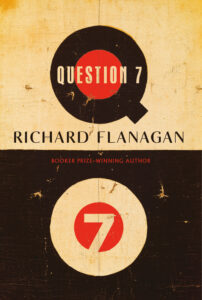
Richard Flanagan, Question 7
Knopf, September 17
I’ve never quite understood why Richard Flanagan isn’t more well known in America. From the vivid, innovative brilliance of novels like Gould’s Book of Fish and The Narrow Road to the Deep North to urgent, deeply moral nonfiction like Notes on Exodus, you’d be hard pressed to find a contemporary writer with greater range (though maybe that answers my question). So I’m particularly excited to get my hands on Question 7, billed as a genre-fluid hybrid memoir, in which Flanagan probes the myths and realities of his own family. –JD
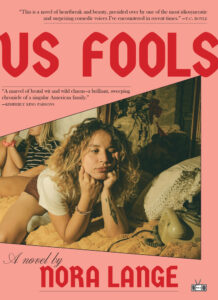
Nora Lange, Us Fools
Two Dollar Radio, September 17
In this “tragicomic, intimate” debut, two sisters, growing up on a farm in Illinois during a recession, trying to keep the realities of debt and disaster at bay by turning inward, or rather toward one another—but of course, in America, this can never work for long. “At turns hallucinatory and ruminative,” says Amelia Gray, “fans of Joy Williams will find a familiar in Lange’s sharp-witted prose.” Good enough for me. –ET
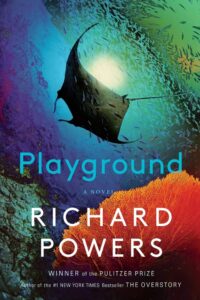
Richard Powers, Playground
W.W. Norton, September 24
In his latest novel, Powers shifts his attention from the trees to the ocean, and to four people whose lives entwine on an island in French Polynesia, where a project is brewing that could change their lives—and also the way humans have lived on the planet since the beginning of time. So, minor stuff then, as usual. –ET
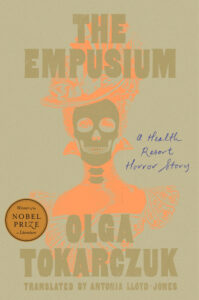
Olga Tokarczuk, tr. Antonia Lloyd-Jones, The Empusium: A Health Resort Horror Story
Riverhead, September 24
Nobelist Tokarczuk’s latest novel is—yes—a horror story set at a spa. Since it’s 1913 Poland, the spa is a health resort called Wilhelm Opitz’s Guesthouse for Gentlemen. That’s enough for me, but if you’d like a little taste of the weirdness in advance, The New Yorker recently published an excerpt you can read right now. –ET
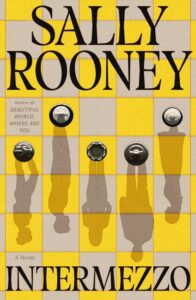
Sally Rooney, Intermezzo
FSG, September 24
It’s Book Girl Summer, and all the bookiest girls are reading their (confidential, numbered) galleys of Intermezzo. But when fall falls, the whole world will be able to get its hands on Rooney’s latest, which concerns the complicated love lives of two brothers in the wake of their father’s death—Peter, a lawyer who has never quite fallen apart like this before, an Ivan, a competitive chess player, who falls for an older woman. But it really doesn’t matter what it’s about, does it? It’s a new Sally Rooney novel, and so literary publishing is saved for another year. The only question is, what kind of merch are we going to get this time around? (Can’t wait to learn to play chess on my Rooney-brand board…) –ET
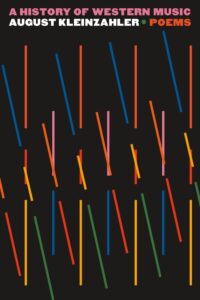
August Kleinzahler, A History of Western Music
FSG, September 24
The legendary poet returns with a new collection that aims to capture, as the title implies, the breadth of Western Music on its pages. Music is such an intimate and indelible part of a life and I can’t wait to see how Kleinzahler blends his love for music across time with his own lyrical style. –DB
Charles Burns, Final Cut
Pantheon, September 24
I can’t count the number of people I’ve bullied into reading Charles Burns’s outstanding 2005 graphic novel (originally a 12-issue series) Black Hole, so obviously, I couldn’t be more excited to dive into Final Cut, his first standalone graphic work since, which is about horror movies and science fiction and filmmaking and—like all of Burns’s best work—the weirdness and terror of being a person in the world. –ET
Pedro Almodovar, tr. Frank Wynne, The Last Dream
HarperVia, September 24
Pedro Almodóvar has made some of my favorite films. His hyper-theatrical melodramas are funny, strange, heartbreaking, sensual, provocative, and beautifully composed. This fall, quite luckily for fans, he’s applying that singular aesthetic to a “fragmented autobiography.” This genre-bending collection (his first published in English) features twelve stories that collapse the space between memoir and fiction, and span the filmmaker’s fifty year career. Fans can expect backstage secrets, elegies, obsessions, and kernels of inspiration from this cabinet of curiosities. –BA
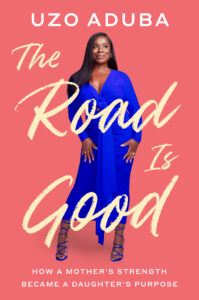
Uzo Aduba, The Road is Good
Viking, September 24
Ever since her scene-stealing turn in Orange is the New Black, I’ve found Uzo Aduba to be one of our most interesting actors. This fall, she’s bringing her characteristic blend of warmth and wildness to a new storytelling medium. In her debut memoir, Aduba recounts a vexy childhood spent in suburban Massachusetts following her family’s immigration from Nigeria. Reflection leads to a fresh appreciation of a complex family legacy. And Aduba also traces, in vulnerable detail, her own long road to self-empowerment.
I’m told we can also expect an “unforgettable matriarch,” from this poignant coming-of-age talea. And, humbling anecdotes from the actress’ early years grinding out auditions in New York. –BA
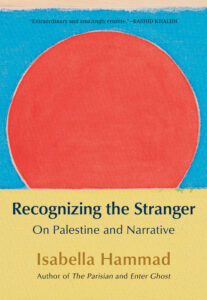
Isabella Hammad, Recognizing the Stranger: On Palestine and Narrative
Black Cat, September 24
Isabella Hammad recently won the Aspen Words Literary Prize and the Encore Award for her magnificent second novel, Enter Ghost—the story of a young British-Palestinian actress who, on a trip to Haifa to visit her sister, is talked into joining a staging of Hamlet in the West Bank. Nine days before October 7, Hammad—who has been fearless in using her platform to advocate for Palestinian rights and denounce the brutality and injustice of the Israeli settler colonial project—delivered the Edward W. Said Memorial Lecture at Columbia University. A powerful, profound, and fascinating speech that blended literary criticism and cultural analysis to illuminate the Palestinian struggle for freedom, it is published here alongside a searing afterword, written in the early weeks of 2024, when Israel’s war on Gaza had already claimed the lives of over 25,000 people. –DS
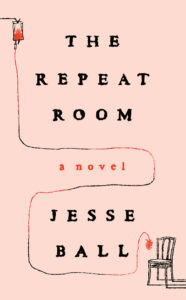
Jesse Ball, The Repeat Room
Catapult, September 24
Ball is one of our most interesting working writers—his novels are always, it seems, trying to do a little bit more than just tell a story. In his latest, which is being pitched as “Franz Kafka meets Yorgos Lanthimos” (insane if true), a “menial worker” called Abel is called for jury duty in a speculative future. In the titular repeat room, Abel is able to experience the life of the defendant more intimately than ever before. Sounds weird and compelling, and—comps aside—very Jesse Ball. –ET
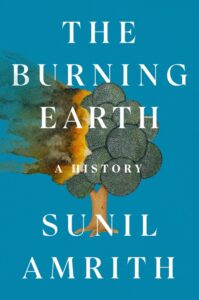
Sunil Amrith, The Burning Earth: A History
W.W. Norton, September 24
As historian Sunil Amrith spells out in his latest grim epic of humanity’s impact on the planet, wherever empire obtains, there follows its dark twins, war and profit. And while this has been the case for millennia, as Amrith shows in The Burning Earth, the 20th century’s two great wars altered the planet at an unprecedented scale, between their unfathomable human toll and their need for almost endless resource extraction. If we do not sunder our unholy reliance on conflict and profit, Amrith seems to warn, we risk the survival of both the planet, and everyone who lives on it. –JD
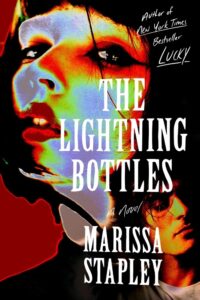
Marissa Stapley, The Lightning Bottles
Simon & Schuster, September 24
With The Lightning Bottles, Marissa Stapley has crafted both a page-turning mystery and a love letter to the grunge era. The set-up is simple and compelling: what if Courtney Love set out on a road trip across Europe with her internet sleuthing neighbor to uncover the real truth behind Kurt’s death? The parallels to Kurt and Courtney aren’t that exact—the novel is actually about a disappeared rock star and his bandmate/lover’s search for him after she finds out he still may be alive. Still, we all know what we’re meant to be listening to while reading it. –MO
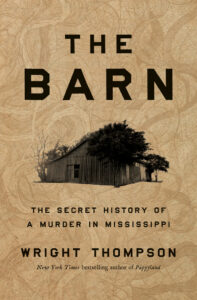
Wright Thompson, The Barn: The Secret History of a Murder in Mississippi
Penguin Press, September 24
It’s been nearly 70 years since Emmett Till, a 14-year-old Black boy from Chicago who was visiting family in Mississippi, was tortured and murdered for allegedly whistling at a white woman. Nonetheless, crucial facts about this historic injustice are still coming to light, many of which are gathered in Wright Thompson’s gripping, thoroughly researched account of the night Till was murdered—in a barn just over 20 miles from Thompson’s family farm—and the cover up that followed (and continues to this day). An important addition to the historical record. –JD
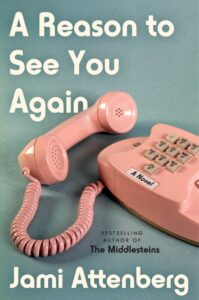
Jami Attenberg, A Reason to See You Again
Ecco, September 24
Most of the time, the thing I want to read most is a sprawling family saga—call it high-brow escapism (though I’ll take escapism at most any brow height). Having previously escaped into Jami Attenberg’s deeply satisfying, very funny fiction, I can’t wait for her latest, which spans 40 years in the lives of the women in the Cohen family after the death of its patriarch. –JG
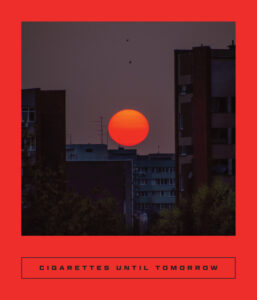
Cigarettes Until Tomorrow: Romanian Poetry
Two Lines, September 24
Two Lines continues their Calico Series with a collection of newly translated Romanian poetry. This series, with its eye-catching design and sparkling curation, is one of the best modes of discovery out there: pick one up, regardless of what you think you know about the contents, and you’re bound to discover a whole new slice of the literary world—like, in this edition, Romanian poetry! –DB
October
Dionne Brand, Salvage: Readings from the Wreck
FSG, October 1
The poet/theorist/thinker Dionne Brand wowed me once with her 2001 book on Black diaspora, A Map to the Door of No Return. That project strains classification—it’s essay, it’s meditation, it’s theory, it’s memoir, it’s poem—and her upcoming book Salvage looks to be as ambitious. In this new collection, Brand considers the perils of “making and remaking the self” that’s been brewed in dominant narratives. She situates this exploration in a larger one, though, offering readers a capacious look at the “wreck of empire.” –BA
Louise Erdrich, The Mighty Red
Harper, October 1
A new novel from Louise Erdrich—winner of the Pulitzer Prize and the National Book Award, if you didn’t know—is always something to celebrate. Her latest, set in North Dakota in the shadow of the 2008 recession, is, like so much of her work, “a story of love, natural forces, spiritual yearnings, and the tragic impact of uncontrollable circumstances on ordinary people’s lives.” Start clearing off space on your bedside table now. –ET
Annie Ernaux and Marc Marie, tr. Alison L. Strayer, The Use of Photography
Seven Stories, October 1
Until I read Rebecca Bengal’s terrific interview with writer/curator Lou Stoppard, who, in the book Exteriors: Annie Ernaux and Photography, paired text from Annie Ernaux’s Exteriors with dozens of photos, I was unaware of Ernaux’s deep interest in photography. In The Use of Photography, first published in 2005, Ernaux and journalist Marc Marie document their affair, through text and photos, as Ernaux is undergoing cancer treatments. A must-read for lovers of words, images, and Ernaux herself. So… everyone? –JG
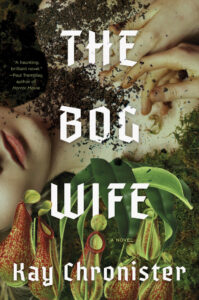
Kay Chronister, The Bog Wife
Counterpoint, October 1
I have a friend who describes her taste in books as primarily “stories about women living near bogs or falling into bogs, spiritually or literally”—and she is not the only one. Thank goodness for Kay Chronister, delivering the book that all the bog-wives need: a story about a family, a bog, and the connection between them. –DB
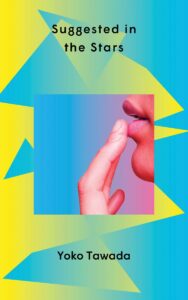
Yoko Tawada, tr. Margaret Mitsutani, Suggested in the Stars
New Directions, October 1
Scattered All Over the Earth was a surprisingly joyful book about climate change and Tawada continues the hopeful and magical adventures of Hiruko and her friends as they make their way to Copenhagen. I can’t even begin to imagine what they’ll get up to, but I know it will be a giddy delight. –DB
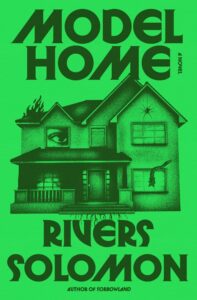
Rivers Solomon, Model Home
MCD, October 1
As previously recommended: A haunted house novel dealing with family, segregation, and racism in the American South, released on the first day of spooky season and five weeks before the election? Blurring the line between the supernatural and the all-too-human evils around us?? Rivers Solomon has their finger on the pulse of things, to be sure. I’m betting on this one to be Solomon’s breakout. –DB
Clarice Lispector, tr. Katrina Dodson, Covert Joy: Selected Stories
New Directions, October 1
Listen, I am going to continue to anticipate, and also to buy, every beautifully-designed collection of Clarice Lispector stories that New Directions deigns to publish. There are worse ways to die than under a pile of these. –ET
Alan Moore, The Great When
Bloomsbury, October 1
As previously recommended: When a fictional book out of an Arthur Machen story ends up in a used bookstore in post-WWII London, a young man’s entire sense of the universe is turned upside down. It’s a rollicking adventure, the first in an apparent series. Imagine if Neil Gaiman commissioned Kevin Barry to write a prequel to Neverwhere and gave him some acid to help get things going, and that’s just the start of it. –DB
Betsy Lerner, Shred Sisters
Grove Press, October 1
Patti Smith compared this debut novel—from the author of the memoir The Bridge Ladies—to a “souped-up pickup truck,” and while I don’t have any idea what that means, it still makes me all the more eager to read this story of sisterhood, love, and disaster. –ET
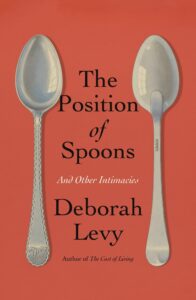
Deborah Levy, The Position of Spoons: And Other Intimacies
FSG, October 1
I’ll read Deborah Levy on just about anything, and this book specifically seems to be about, well, just about anything. Levy’s writing is often made up of observing and witnessing, depicting the small pleasures and microcosms of humanity that make up a life well lived. In The Position of Spoons, Levy offers insight and anecdotes into many subjects: ideas, people, countries, belongings, literature. Writing with lyricism and wit always, Levy takes the reader on a journey through all that has mattered most to her writing and living, the things that make up her heart and mind’s tender fixations, and offers a way for us all to meditate on the small and crucial ways we make sense of the world. –JH
Aaron Robertson, The Black Utopians
FSG, October 1
Writer, translator, and editor Robertson’s first full-length work of nonfiction is an investigation into Black Americans’ visions of utopia, from the Reconstruction era to the present day. This book is “not merely a historical recounting of collective innovation, but an urgent philosophical quest for what is sacred about the Black utopian imagination in the face of brutal constraints,” writes Adrian Shirk. “The Black Utopians unearths again and again crucial legacies of Black resistance.” Robertson is a former Lit Hub editor, so I happen to know first-hand how brilliant he is—can’t wait to read this book. –ET
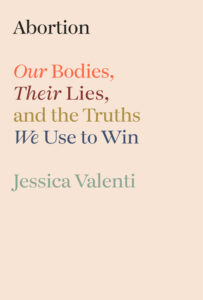
Jessica Valenti, Abortion: Our Bodies, Their Lies, and the Truths We Use to Win
Crown, October 1
Conservative America’s decades-long campaign to overturn Roe v. Wade always seemed more like fantasy than a possible reality (even to them) until suddenly it wasn’t. So what happens now? In her latest, which is being billed as “a handbook for the overwhelming majority of Americans who support abortion rights,” Jessica Valenti reveals some of the darker strategies employed by the radical Right to take away a woman’s right to choose, while also outlining the many ways in which pro-choice Americans can restore to women their fundamental human rights. –JD
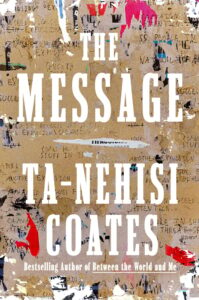
Ta-Nehisi Coates, The Message
One World, October 1
Apparently, Ta-Nehisi Coates, MacArthur Fellow and bestselling author of Between the World and Me, has been off trying to write a book about writing. Instead, he has come back with this: three “intertwining essays” that take us from Dakar, Senegal, to Columbia, South Caroline, to Palestine and Jerusalem, which all come back to that Coates has identified as our “urgent need to untangle ourselves from the destructive nationalist myths that shape our world—and our own souls—and embrace the liberating power of even the most difficult truths.” –ET
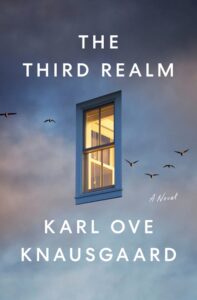
Karl Ove Knausgaard, tr. Martin Aitken, The Third Realm
Penguin Press, October 1
Hive, we ride again to Norway.
In this third visit to a sky first seen in his 2020 novel, The Morning Star, Knausgaard traces the fall-out of a celestial event. The Third Realm is being framed as a kaleidoscopic, multi-character tour de force, complete with black metal band intrigue, murder mysteries, and a literal bank of dreams. If this book is anything like its two predecessors, I’d guess we can expect some profound meditations on the nature of life interspersed among the action.
I continue to appreciate the polyphonic experiments coming lately from Knausgaard, who made his name burrowing inward. Turns out the telescope is just as exciting as the microscope. –BA
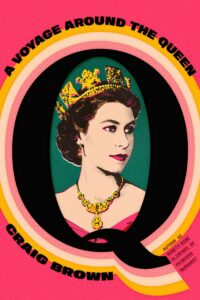
Craig Brown, Q: A Voyage Around the Queen
FSG, October 1
Brown, the author of 2018’s Ninety-Nine Glimpses of Princess Margaret, winner of the James Tait Black Memorial Prize, now takes on Queen Elizabeth herself with his trademark aggregation and wit. Should be fun. –ET
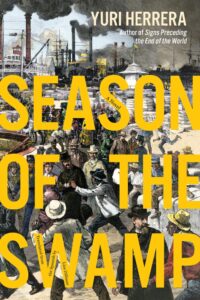
Yuri Herrera, tr. Lisa Dillman, Season of the Swamp
Graywolf, October 1
Speculative history fans, get hyped. I bring tidings from a modern master. Season of the Swamp follows Benito Juárez, the first (and er, only…) indigenous president of Mexico. But in this novel, we meet the future head of state as a young migrant to 1850s New Orleans. After being expelled from his homeland, Juárez is thrown into a community of peripatetic fellow outcasts working odd jobs in their adopted city. The big easy, that singular melting pot, is the other main character.
The novel traces Juárez and his cohort over a year in New Orleans, as they plot a revolutionary return to Mexico. And while the city’s romantic rhythms entrance our hero, he also gets to observe America’s founding contradictions up close. Told in Herrera’s typically sparkling, form-exploding language, this one is screaming ‘modern epic.’ –BA

Suzumi Suzuki, tr. Allison Markin Powell, Gifted
Transit Books, October 1
Suzumi Suzuki’s English-language debut—which was shortlisted for Japans prestigious Akutagawa Prize—tells the story of a young sex-worker, thrust into the role of caregiver for her abusive mother, splitting her life in half. It also carries the most savage blurb I have ever read, from Yōko Ogawa, who writes: “Demonstrates that death is the only way forward. Oozes with maternal cruelty.” Damn. –ET
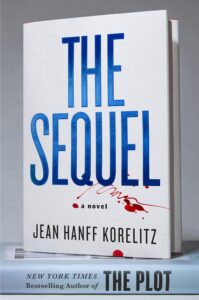
Jean Hanff Korelitz, The Sequel
Celadon, October 1
Fans of Korelitz’s literary thriller The Plot will (manuscript theft! identity theft! murder most foul! soup!) get excited for the sequel: The Sequel, in which a certain author’s widow decides to write her own book—and discovers that she’s not the only one who knows a few secrets after all. Fun. –ET
John Banville, The Drowned
Hanover Square Press, October 1
Bestselling, Booker Prize-winning Banville is Back (sorry, couldn’t help myself) with another Strafford and Quirke novel, this one a “richly atmospheric” mystery set in a small town on the Irish coast, where a woman may or may not have thrown herself into the sea. Never gets old. –ET
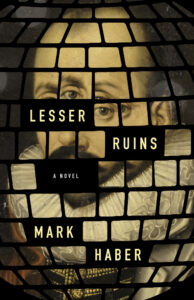
Mark Haber, Lesser Ruins
Coffee House Press, October 8
This is a novel in which the narrator’s primary objective—to finally write a book length essay on Michel de Montaigne—doesn’t come close to being completed, at least not in the pages provided. Lesser Ruins is a near perfect document of what it is to procrastinate, spun out in Haber’s signature absurdist, looping, intellectually ecstatic style. –ET
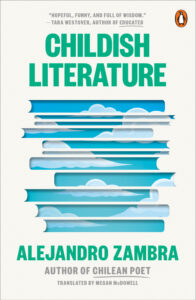
Alejandro Zambra, Childish Literature
Penguin Books, October 8
The past years have brought a great slew of new motherhood books, but there hasn’t exactly been an equal and opposite addition of fatherhood literature: Alejandro Zambra’s new book, Childish Literature, is a welcome contribution to the growing parenting oeuvre. A smattering of different mediums, stories, essays, and poems all make up this work, all inspired and influenced by the state of fatherhood. A new role such as this one can make a person recalibrate and reframe their entire life, and Zambra illustrates the impact becoming a father has had on his outlook. These warm and caring pieces depict his meditations on time and mortality and tenderness, and allow the reader to witness the richness of ordinary life, the treasures found therein. –JH
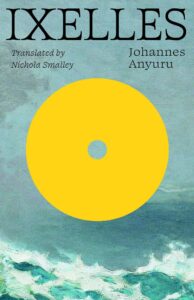
Johannes Anyuru, tr. Nichola Smalley, Ixelles
Two Lines Press, October 8
Any novel that gets comped to both Jeff VanderMeer and Colson Whitehead is going to be an auto-pick-up for me. This one follows a woman who works “creating elaborate fictions to shape public opinion” as she returns to her old home—where she finds a CD with the voice of someone claiming to be her dead husband. It’s giving slipstream strangeness and I’m ready for it. –DB
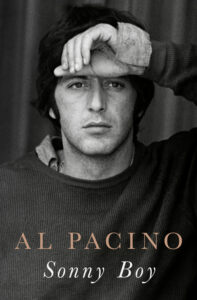
Al Pacino, Sonny Boy
Penguin Press, October 8
Arguably the greatest (and certainly the shoutiest) actor this country has ever produced has, at the tender age of 84, penned his first memoir. Sonny Boy charts the Oscar-, Tony-, and Emmy-winning New Yorker’s journey from the South Bronx to Hollywood, exploring his most iconic roles and meaningful relationships, as well as his deep, sustaining love for the craft of acting. Personally, I’m hoping for some extended analyses of Dog Day Afternoon (“Attica! Attica!”), Sea of Love (“Come the wet-ass hour, I’m everybody’s daddy!”), and, of course, The Devil’s Advocate (“He’s an absentee landlord!”). –DS
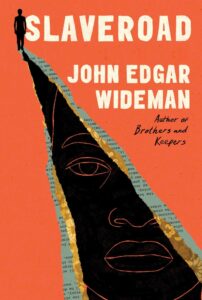
John Edgar Wideman, Slaveroad
Scribner, October 8
A genre-bending investigation into the “slaveroad”—a term which “begins with the Atlantic Ocean, across which enslaved Africans were carried, but…comes to encompass the journeys and experiences of Black Americans since then and the many insidious ways that slavery separates, wounds, and persists” from literary giant and MacArthur Fellow John Edgar Wideman. Mixing history, memoir, and fiction, this will no doubt be an essential 2024 read. –ET
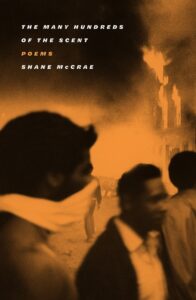
Shane McCrae, The Many Hundreds of the Scent
FSG, October 8
Blending the grandly mythic (the fury of Achilles, the sorrow of Penelope) with the personally tragic (a heartbreaking lyric snapshot of being kidnapped by his white grandparents), poet Shane McCrae has found a deeper register of lyric grace with this new collection, and we are all the luckier for it. A contemporary poet everyone should be reading. –JD
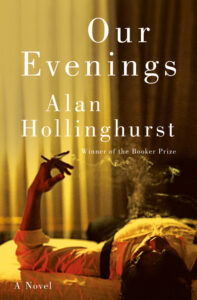
Alan Hollinghurst, Our Evenings
Random House, October 8
The latest novel from the beloved, Booker Prize-winning author of The Line of Beauty and The Swimming Pool Library is a sweeping story of one man’s life—first a working-class, brown-skinned teenager at a fancy boarding school on a scholarship, then a young man exploring his sexuality, then an actor, then a married man in London—and the family, not his own who gave him so much and also would threaten to take it away. All of this being very likely, given the source, to destroy you by the end (in the best way, of course). –ET
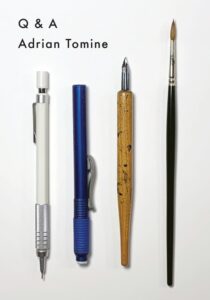
Adrian Tomine, Q&A
Drawn and Quarterly, October 8
I first met Tomine’s work through The New Yorker, where he’s a resident cartoonist. His graphic shorts look closely at the day to day indignities entailed by modern living, and I find him to be a profound and truthful bard of alienation and ennui. In this new collection, he spills trade secrets about his practice, process, and preferred tools as an artist. Readers can expect panel drafts, musings, and some personal history, rendered in Tomine’s “meticulous brand of madness.” –BA
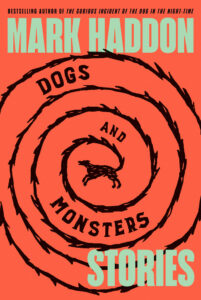
Mark Haddon, Dogs and Monsters: Stories
Doubleday, October 15
From the author of The Curious Incident of the Dog in the Nighttime and The Porpoise, a collection of eight short stories informed by Greek myths—from Tithonus to the minotaur—and refracted through our contemporary lens. “Haddon’s tales cover a vast range,” the publisher tells us, “from the mythic to the domestic, from ancient Greece to the present day, from stories about love to stories about cruelty, from battlefields to bed and breakfasts, from dogs in space to doors between worlds, all of them bound together by a profound sympathy and an understanding of how human beings act and think and feel when pushed to the very edge.” –ET
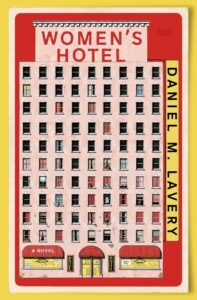
Daniel M. Lavery, Women’s Hotel
HarperVia, October 15
A novel that describes the last days of The Beidermeier (akin to the Barbizon, the famed hotel of every unmarried woman who came to New York) promises to be full of big personalities, from party girls to elevator operators. Lavery’s writing is sharp and endlessly funny, this is definitely on my TBR pile. –EF
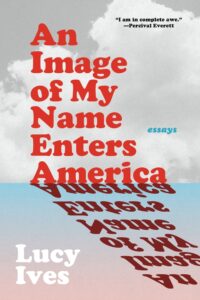
Lucy Ives, An Image of My Name Enters America: Essays
Graywolf, October 15
It is rare for a mind as mercurial and voracious as Lucy Ives’s to possess such obvious lexical facility in guiding readers from one thought to the next, but here we are: Ives is one of our brilliant weirdos and must be protected at all costs. In her latest collection of five essays, the mind in question rappels (darts? gallops? gavottes?) from one subject to the next, pulling in stray thoughts with accomplished ease: My Little Pony? The settlement of the American West? Assyrian genocide? They’re all fair game to a great essayist like Ives. –JD
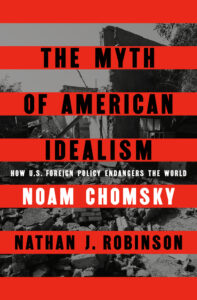
Noam Chomsky and Nathan J. Robinson, The Myth of American Idealism
Penguin Press, October 15
Recent rumors of Noam Chomsky’s death were, indeed, exaggerated, but this is likely to be his last book (co-authored with Nathan J. Robinson)—and it couldn’t be more timely. An outspoken critic of American empire for most of his life, here Chomsky zeroes in on the myths underlying that imperial expansion, namely the idea that the spread of democracy (no matter the methods) is an unalloyed good. The problem, of course, is that powerful men in small rooms who think themselves both wise and just tend to do the most damage. –JD
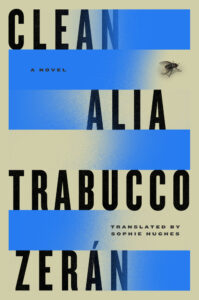
Alia Trabucco Zeran, Clean
Riverhead, October 15
A housemaid in prison narrates her tale of woe as a confession in this visceral exploration of class, privilege, and humanity. It is clear from the beginning that something terrible has happened to her employers’ young daughter, but we must wait for a complex story to unravel before learning exactly the nature of the tragedy. Heartbreaking, furious, and a modern masterpiece! –MO
Simon Critchley, Mysticism
NYRB, October 15
“Why mysticism?” asks Critchley at the beginning of this volume. He borrows a definition for the term from Evelyn Underhill, who calls it “experience in its intense form,” and asks the reader, “wouldn’t you like to have a taste of this intensity? Wouldn’t you like to be lifted up and out of yourself into a sheer feeling of aliveness, both your life and those of the creatures that surround you?” Well, sure, and if I get there by means of Critchley’s investigation into Annie Dillard, Anne Carson, Nick Cave, and T.S. Eliot, so much the better. –ET
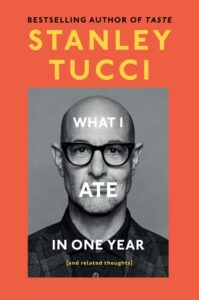
Stanley Tucci, What I Ate in One Year (And Related Thoughts)
Gallery Books, October 15
Stanley Tucci loves food. The actor has in recent years made himself over as an approachable and sophisticated gourmand, a culinary leading man—though I’m still working on forgiving him for shaking, and not stirring, his Negronis. Tucci’s What I Ate In One Year is a diary project, using both good and bad meals as the jumping-off point to examine food and the ways it can connect us. Dining with friends and strangers, in good times and bad, Tucci recalls not just the memorable meals, but the small and less flashy ones too. What I Ate In One Year is a buffet of the moments that are possible over a shared plate. –JF
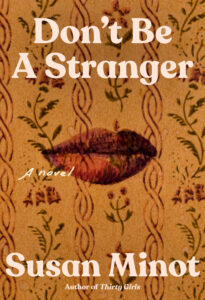
Susan Minot, Don’t Be a Stranger
Knopf, October 15
The kids might not be having sex anymore (or so I hear), but the moms still are—including Ivy Cooper, the 52-year-old at the center of Susan Minot’s latest book, who falls into an all-consuming affair with a bad boy musician in his 30s. Detractors of Anne Hathaway and gorgeous prose need not apply, but for the rest of us, a treat. –ET
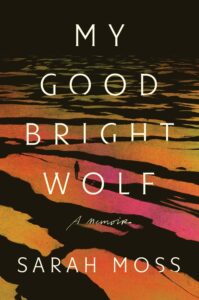
Sarah Moss, My Good Bright Wolf
FSG, October 22
One of the leading chroniclers of women-in-bogs (see: The Bog Wife earlier) delivers a memoir about her relationship to food and her body and the ways that our society prioritizes certain narratives and ignores others about both, particularly when it comes to women. –DB
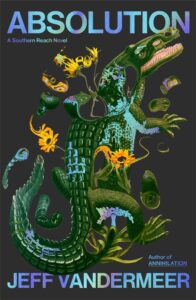
Jeff VanderMeer, Absolution
FSG, October 22
Jeff VanderMeer’s Southern Reach Trilogy was a bona-fide sensation and now he’s headed back to Area X with a fourth novel that is both prequel and sidequel and something else besides. Any excuse to go back to Area X is a welcome one (if, indeed, any of us ever actually left…) and the snippets VanderMeer has been sharing across social media have whipped up quite an appetite for this new book. It makes me so happy that so many people are going to read such a spectacularly strange novel. –DB
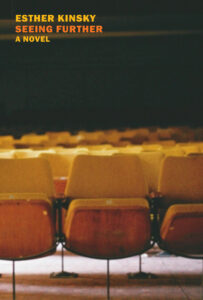
Esther Kinsky, tr. Caroline Schmidt, Seeing Further
NYRB, October 22
The new book by Esther Kinsky, who is known for her lyrical prose, follows a woman who discovers a boarded-up cinema in a small town in Hungary and takes on the job of revitalizing it. Kinsky’s protagonist is compelled to resurrect not just a building, but the town’s collective cinematic experience, “beautiful and undecayed like Snow White, in some people’s thoughts and memories.” The book is an ode to cinema and the communal experiences that the movies make possible, and like her previous novels, Seeing Further promises to be beautiful and ruminative. Not to be missed if you, like me, are enchanted by movie theaters as vital sites of community. –JF
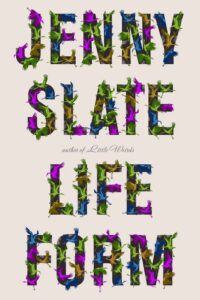
Jenny Slate, Life Form
Little, Brown, October 22
Following on the heels of her special from earlier this year, Jenny Slate is releasing a book of sprightly and comedic (of course) essays in October. Motherhood is one of the many topics discussed in her special, Seasoned Professional: what it is to care for a baby, how insane childbirth is, all the changes and surprises that come from matrescence. Life Form centers and builds around this theme, offering questions and advice and humor and her experience with motherhood, all written in Slate’s trademark pithy and conversational voice. –JH
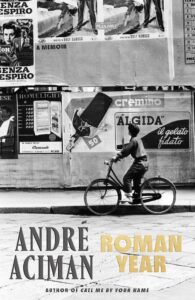
André Aciman, Roman Year: A Memoir
FSG, October 22
André Aciman, author of Call Me By Your Name, is an excellent prose stylist—especially when he’s describing place (his ability to evoke Italy has already been well-proven), and a compelling literary thinker. These qualities bode quite well for this memoir, which covers the time he spent in Rome as an adolescent, having fled Egypt with his family. –ET
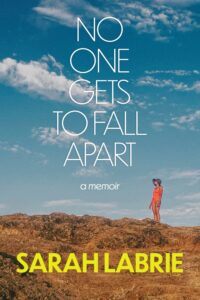
Sarah Labrie, No One Gets to Fall Apart: A Memoir
Harper, October 22
When Sarah Labrie’s mother suddenly experienced a mental break and was diagnosed with schizophrenia, it both opened a chasm of questions as well as provided answers for a tumultuous and volatile childhood she’d never fully understood. With the clarity of that diagnosis, Labrie looks back on the lineage of her ancestors and their own struggles with mental health, and its inexorable ties to racism, to the weight of their shared history of enslavement. Along with her ancestors, she traces her own experiences with depression and the darknesses that can threaten to destroy a mind. Using her mother’s break as a launching point, readers will be treated to a meandering and wise discussion of the past’s coloring of our futures, and how to carve the best path forward even through pain and rupture. –JH
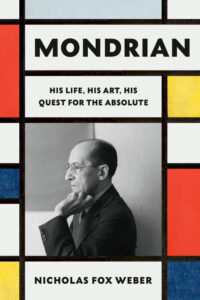
Nicolas Fox Weber, Mondrian: His Life, His Art, and the Quest of the Absolute
Knopf, October 29
Piet Mondrian’s abstract, pure color, geometric paintings are mesmerizing, and probably among the most maligned by the “what’s the big deal about modern art, my kid could do that” set of annoying dads at the museum. In this new biography, historian Nicholas Fox Weber follows Mondrian from his strict Protestant upbringing in the Netherlands to the dizzying creative heights of 1920s Paris, where Mondrian forged his radical style alongside Picasso, Seurat, and Cezanne, all while navigating two world wars and their tectonic shifts in politics, culture, and society. Weber has spent a career writing about the interwar art world, including books on the Bauhaus, Balthus, and the art patrons who brought the avant-garde to America, and his writing on Mondrian promises to be a portrait of not just an artist, but also of the influence his style had on art, architecture, and design. –JF
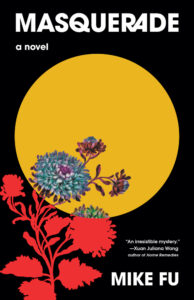
Mike Fu, Masquerade
Tin House, October 29
A newly single guy is house-sitting for a friend when he comes across an old novel written by someone with his name. Does reality begin to blur a bit as a result? All signs point to yes—and I’m excited for this magically realist novel of Millennial friendship and art. –DB
Damion Searls, The Philosophy of Translation
Yale University Press, October 29
I find translation endlessly fascinating—I mean, reading and writing at the same time, is this hell or the holy grail?—so I’m very much looking forward to hearing what Searls, one of our best working translators, has to say about it in this “fresh, approachable, and convincing account” of the theory and practice of the craft. –ET
Leonora Carrington, The Stone Door
NYRB, October 29
Long out of print, Leonora Carrington’s second novel is being brought back to the masses by the fine folks at NYRB—and while the synopsis is sure to bend your noggin, full as it is of mad kings and puzzle boxes and surrealist imagery, that’s exactly what we go to Carrington’s art (in any of its forms) for. –DB
Mosab Abu Toha, Forest of Noise
Knopf, October 29
Acclaimed poet, scholar, and librarian Mosab Abu Toha (Things You May Find Hidden in My Ear) was barely thirty years old when Israeli bombardment forced him and his young family to flee for their lives in November of last year. As the bombs rained down on his home and the library he built (and rebuilt); as he was kidnapped, beaten, interrogated, and stripped of his possessions by the IDF; as he finally got his wife and children across the border into Egypt, Abu Toha continued to write poetry. Those poems—about life in Gaza under siege, including odes to family, elegies to those killed, lyrics to the moon, and “remembrances of a life lived fully there”—make up this astonishing collection, which has already received rapturous praise from Ocean Vuong, Ada Limón, Terrance Hayes, llya Kaminsky, and Naomi Shihab Nye. –DS
November
Peter Ames Carlin, The Name of this Band is R.E.M.
Doubleday, November 5
R.E.M. was my first concert (youngest child privilege), and I maintain a deep love for the band, and its quintessentially 90s sound and ethos. Carlin’s cultural biography will undoubtedly be a fascinating look not just at the band but at the musical era, and make me deeply nostalgic. Luckily, as an elder Millennial, deep nostalgia is my jam. –JG
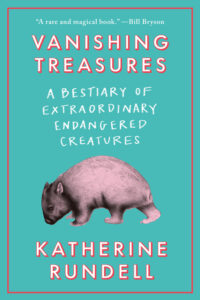
Katherine Rundell, Vanishing Treasures: A Beastiary of Extraordinary Endangered Creatures
Doubleday, November 12
Everyone knows about the seahorse: the males carry the young and they mate for life. But what about the American wood frog which freezes itself solid to survive the winter? Or the lemur, which “whenever they are cold or frightened, group together in what’s known as a lemur ball”? In Rundell’s new book, she explores 23 unusual and underappreciated endangered animals, presenting readers with the chance to “reckon with the beauty of the world, its fragility, and its strangeness.” –EF
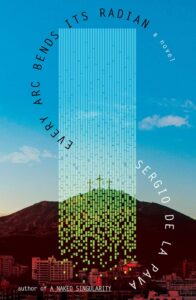
Sergio de la Pava, Every Arc Bends its Radian
Simon & Schuster, November 12
Sergio de la Pava is still best known for his thrilling, bizarre debut, A Naked Singularity, which won the PEN/Robert W. Bingham Prize in 2013 (some five years after it was originally (self-)published, funnily enough). Perhaps that will change with his latest, “an existential detective novel” about a philosophical PI who ditches New York City for Colombia and gets embroiled in a strange case. But even if not, we should be in for a very fun ride. –ET
Charles Baxter, Blood Test
Pantheon, November 12
A new book from Baxter, an American master, is always a cause for celebration—and this one sounds hilarious and off-kilter in the best way, following an ordinary middle-American divorced dad who takes a blood test and discovers that he has a predisposition to murder. I mean, sure! –DB
Marisha Pessl, Darkly
Delacorte Press, November 12
Pessl’s new one sounds like it follows in the footsteps of Night Film: a teenager lands an internship at a foundation furthering the legacy of a reclusive and brilliant video game designer… only for things to get strange along the way. A dose of formal derring-do is almost guaranteed and I can’t wait to dive into what’s sure to be a thrilling puzzle. –DB
Lili Anolik, Didion and Babitz
Scribner, November 12
Anolik first introduced readers to Eve Babitz with her book Hollywood’s Eve, a thoroughly intimate uncovering of a writer everyone had forgotten (a woman who had modeled for Marcel Duchamp, slept with everyone from Jim Morrison to Harrison Ford, and was “discovered” by none other than the patron saint of LA herself, Joan Didion.) After Babitz died, Anolik found correspondence between Babitz and Didion that shed new light on their complicated relationship (and the incredibly cutting line from Babitz: “Could you write what you write if you weren’t so tiny, Joan?”) In her new book, she paints these two writers side by side telling a story of the seventies, of L.A., and what it means to be a woman writer. So, are you a Joan or are you an Eve? That’s the question everyone will be asking each other this fall. –EF
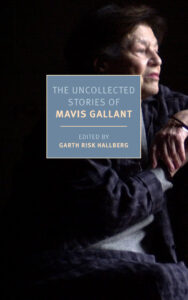
Mavis Gallant, ed. Garth Risk Hallberg, The Uncollected Stories of Mavis Gallant
NYRB, November 12
For too long considered a “writer’s writer” it’s high time Mavis Gallant took her place in the eternal pantheon of great short story writers alongside Chekhov and Cheever and Carver and Munro. Gallant was a master of leaving things out, of letting things happen off-stage; to read her is to experience the true art of writer-as-noticer. I can’t wait to dig into this. –JD
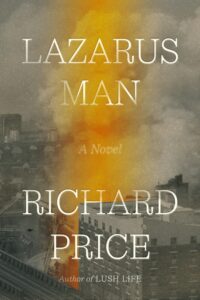
Richard Price, Lazarus Man
FSG, November 12
Price—author of Clockers and Lush Life, who also wrote for The Wire and The Deuce—sets his sights on east Harlem in his latest novel, where a five-story tenement building collapses, leaving chaos—and a lot of interesting characters—in its wake. This is exactly the kind of setup where Price’s skills (of ventriloquism, of evoking the city within the city) are likely to sing; read it before it becomes a television show. –ET
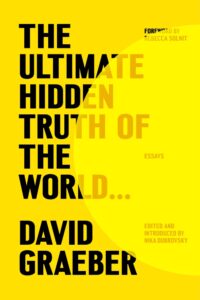
David Graeber, ed Nika Dubrovsk, The Ultimate Hidden Truth of the World…
FSG, November 12
The late anthropologist and radical author David Graeber enjoyed an especially loud fanbase in the last few years of his life–even though he’d been spinning out complex critiques of capitalism for decades prior. The Dawn of Everything, Graeber’s posthumously published history co-written with the archaeologist David Wengrow, has become a shelf flex in my circle. Which speaks as much to Graeber’s analysis as his readability. His books go down easy, even when the message is tough.
Mid-November, we’ll get a compendium of never-before-collected essays and interviews spanning Graeber’s long, deep thinking career. And I have a feeling we’ll need his courage and focus a lot, right around then. –BA
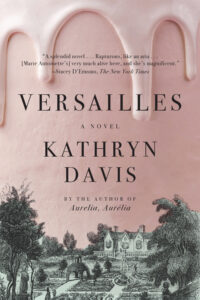
Kathryn Davis, Versailles
Graywolf, November 12
Having recently read Davis’ transcendent memoir Aurelia, Aurélia I’m fully prepared to follow her anywhere—particularly to Marie Antoinette’s Versailles. Originally published in 2002, the novel is being reissued by Graywolf (with a stunning new cover). To quote Stacey D’Erasmo’s review of the novel when it was first published, the historical protagonist is “very much alive here, and she’s magnificent.” –JG
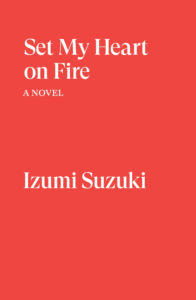
Izumi Suzuki, tr. Helen O’Horan, Set My Heart on Fire
Verso, November 12
I can’t wait for the new Izumi Suzuki, her first novel to be released in English translation. Verso has put out two collections of her short stories, and both are excellent, filled with strange, funny, and tragic tales of the mundane and the supernatural—alien visitations, witchcraft, and bodies that resist time, as well as the pedestrian malaise and disappointments of life. Suzuki’s full-length Set My Heart on Fire takes place in the counterculture of 1970s Tokyo, full of rock and roll, drugs, and transgression. It’s a world Suzuki knew intimately: the punk icon was deep in alternative music and film scenes during her short but brilliant life. If you like the bang and crash of loud music, and the passion and desire it inspires, you don’t want to miss Suzuki’s writing. –JF
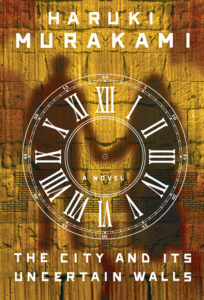
Haruki Murakami, The City and Its Uncertain Walls
Knopf, November 19
Attention English-speaking Murakami fans: after a painfully long wait, your time has come! According to its publisher, Murakami’s first novel in six years is “a love story, a quest, an ode to books and to the libraries that house them, and a parable for these strange post-pandemic times.” Sounds about right. –ET
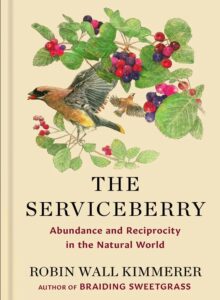
Robin Wall Kimmerer, The Serviceberry
Scribner, November 19
Braiding Sweetgrass remains a perennial bestseller and for good reason: Robin Wall Kimmerer has tapped into something powerful in the way that she’s able to write about the natural world, the modern world, humans, animals, and history without ever breaking a sweat. This newest, about “abundance and reciprocity,” couldn’t be more timely. Let’s hope people not only read it, but take its wisdom to heart. –DB
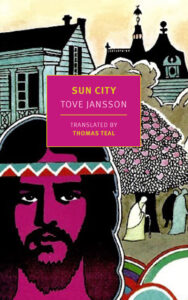
Tove Jansson, tr. Thomas Teal, Sun City
NYRB, November 26
The Janssonissance continues (although it could be said that she never really went away) with NYRB’s latest reissue of this mid-’70s novel about a Florida retirement community and the people who live and work there. I can’t wait to see how her kind and beautiful prose depicts such a place. –DB
December
Gabrielle Korn, The Shutouts
St. Martin’s, December 3
A follow-up to Korn’s Yours For The Taking, this queer, dystopian odyssey picks up where the last book left off. Moving beyond New York, Korn explores a wider swath of her dystopian American future and expands the saga, jumping between two timelines set in 2040 and 2071. Again the focus is on how climate change has shredded the world, and how individuals and communities navigate the storms, fires, and violence of a remade America. Korn’s writing always sparkles, and her new book is sure to feature the same carefully observed characters and relationships that made Yours For The Taking such a stand-out novel. –JF
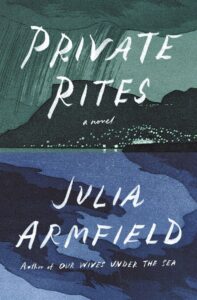
Julia Armfield, Private Rites
Flatiron, December 3
As an Our Wives Under the Sea evangelist, I was absolutely foaming at the mouth for Private Rites. Great news: This book fucks. It’s gay and eerie and vibey and weird. Above all, It Is Wet (Julia Armfield? Writing a Wet Book? It’s more likely than you think). In a world reshaped by climate change, three somewhat estranged sisters come back together when their very estranged father dies. As they sift through their father’s legacy, they begin to understand that something larger and more malevolent is at work in their family. Drink it up, baby! –MC
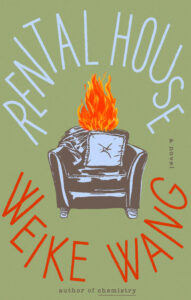
Weike Wang, Rental House
Riverhead, December 3
Wang’s excellent previous novels Chemistry and Joan is Okay both brilliantly explored what happens when things – a life, a career – don’t go as planned. Now, Wang tackles marriage. Rental House is the portrait of Keru and Nate’s marriage in two vacation rentals that take place several years apart. First, in a beach house on Cape Cod, then in a bungalow in the Catskills, the couple entertain friends, their in-laws, and their giant sheepdog Mantou and must navigate how to make their marriage work. –EF
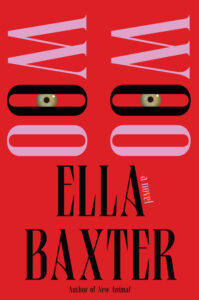
Ella Baxter, Woo Woo
Catapult, December 3
The New Animal author returns with another sure-to-be strange, sure-to-be-gripping novel, this time diving into the art world and the life of a conceptual artist hoping she’s about to break out… but grappling with TikTok, stalkers, a chef husband, and of course her various conceptual alter egos from over the years. A new form of art monster rises over the horizon… –DB
Christopher Bollen, Havoc
Harper, December 3
This book was so effed up!!! And soooooo good. Like, so good I wanna study this in a literature class and highlight the crap out of it. Christopher Bollen has been a growing figure in the literary suspense world for a while, but this book should cement his place as one of the very best. In Havoc, an old woman who likes to travel and likes even more to meddle finally meets her match: an 8-year-old boy staying in the same Luxor hotel. As the two engage in increasingly violent games of one-upmanship, Bollen’s narrator’s emotional defenses begin to crumble, and she must finally come to terms with her own dark secrets. Bollen is particularly skilled at exploring the gap between who we want to be, and who we really are. –MO
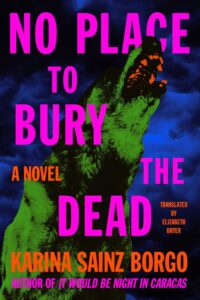
Karina Sainz Borgo, tr. Elizabeth Bryer, No Place to Bury the Dead
HarperVia, December 10
A mother flees an unnamed Latin American country, traveling hundreds of kilometers carrying her ailing husband and her babies, who have tragically died on the journey. Seeking a resting place for them, she buries her children in a surreal, borderland cemetery caught in a land dispute with a powerful landowner. The lines between life and death are hazy in this place, and violence is never far. This book, which won the 2023 Jan Michalski Prize for Literature, is a tale of migration that combines magical realism with Westerns. The Michalski Prize committee praised Borgo for “the virtuosity of a prose that is at once allegorical, luminous and serious, leading us to meet female characters so strong they live beyond the page.” –JF
Lily Tuck, The Rest is Memory
Liveright, December 10
The latest novel by National Book Award-winning Lily Tuck was inspired by one of Wilhelm Brasse’s famous photographs, depicting a 14-year-old Catholic Polish girl named Czeslawa Kwoka, who was killed at Auschwitz in 1943. Little else about her is known, but despite—and also because of—the scant facts, “Lily Tuck has made an extraordinary and disturbingly brilliant novel, one that can stand with the best of W.G. Sebald or Patrick Modiano,” writes Michael Gorra, “and The Zone of Interest too, as a testament to what we must always remember.” –ET

Omar Khalifa, tr. Barbara Romaine, The Sand-Catcher
Coffee House, December
Billed as a Palestinian Citizen Kane, Omar Khalifah’s debut novel is the story of four young journalists at a Jordanian newspaper tasked with interviewing one of the last witnesses of the 1948 Nakba—but the interview is harder to land than any of them expect. A timely new translation and hopefully one we’ll be reading at the same time as we can celebrate a safe and free Palestine. –DB
Emily Temple
Emily Temple is the managing editor at Lit Hub. Her first novel, The Lightness, was published by William Morrow/HarperCollins in June 2020. You can buy it here.









